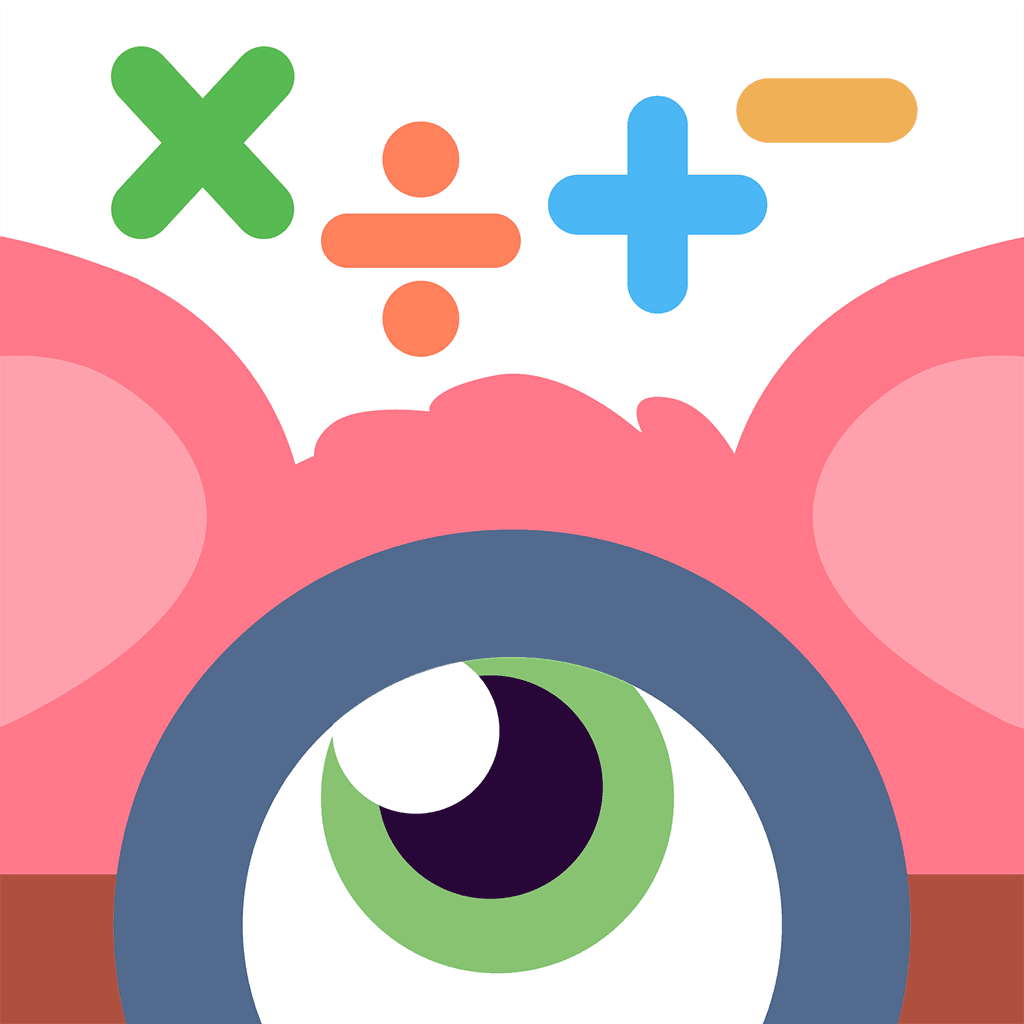25 Amazing Learning Games for Kids with ADHD
TL;DR: Kids with ADHD often find math hard not because of ability, but because working memory and attention demands overload them during multi-step tasks. They could also find reading more difficult if they haven't mastered phonics or spellings. Keeping their attention on task is also a challenge. The right apps can help - especially those with short missions, immediate feedback, visual supports, and low-stakes practice. This curated list covers math, language and science apps that are engaging for ADHD learners. Co-play when possible, prefer ad-free options, use adjustable or no timers, and track real-world progress (can they do a similar problem off-screen?).
If getting your child to sit through math practice feels like trying to hold water in your hands, you're not alone. ADHD symptoms are strongly linked to math difficulties. So your child with ADHD symptoms could struggle with math, not because they are not smart, but because of how their brains process information. Working memory (our mind's mental notepad) which is essential for mental calculation or following multi step instructions can feel harder to manage making math feel frustrating than it should.
Here's the funny twist though: although math practice can seem like an uphill task, when you tap into the way your child learns best, it can get a lot easier. Research shows that kids with ADHD can learn better using games because games are built in a way that matches how ADHD brains work offering short bursts of challenge, instant feedback, and rewards that keep pushing your child forward.
But, not every app out there gets this balance right. With an endless list of apps available online, finding the right one that works for your child can feel overwhelming. That's why we have rounded up some of the best ADHD friendly math, language and science apps that are actually engaging, supportive, and built to keep kids motivated. They all share a few things in common: short quests/missions, immediate feedback, bright visuals, and low-stakes practice that builds confidence instead of stress.
Best Math Learning Apps
1. Monster Math
Adventure-driven math quest.
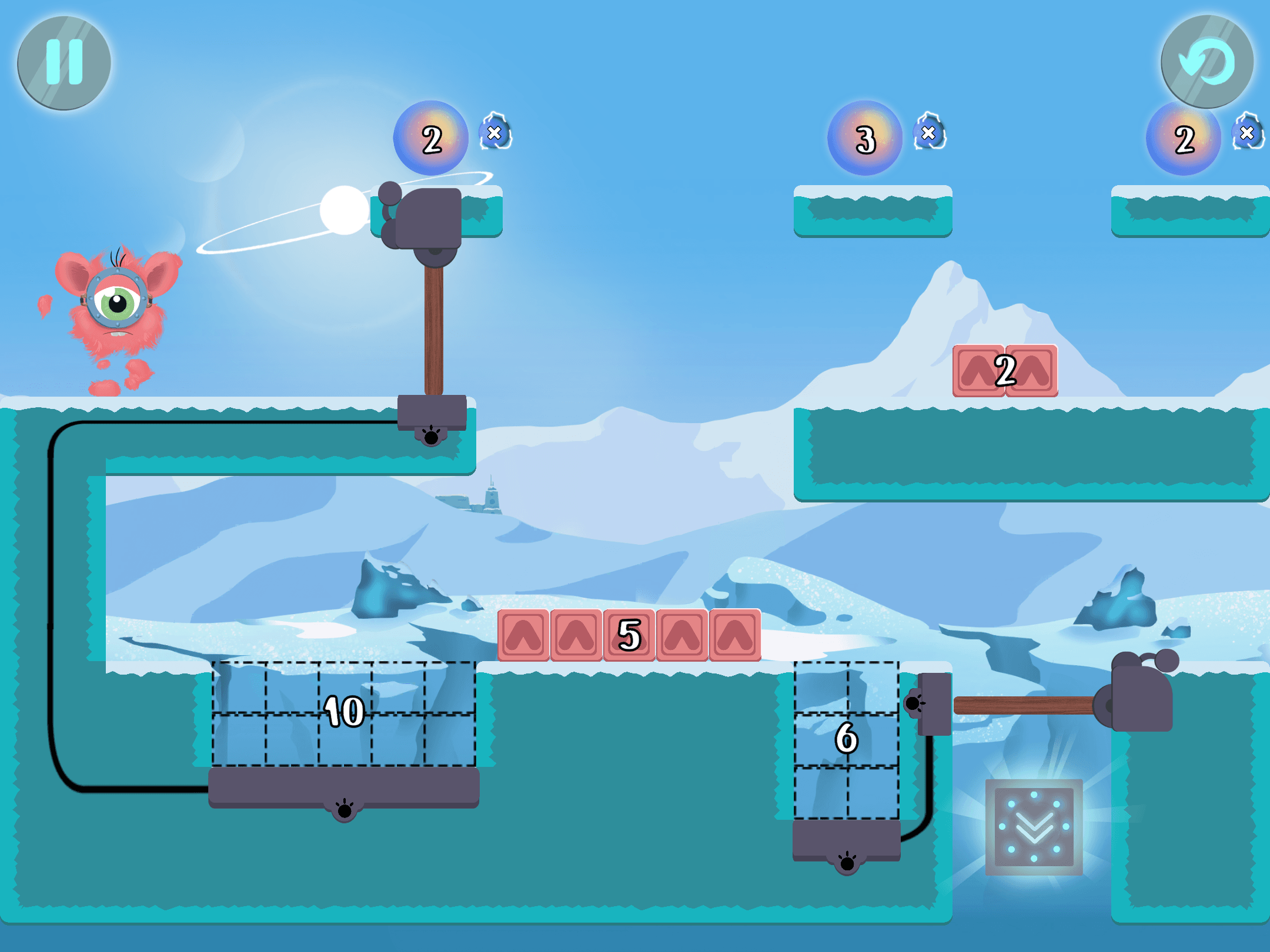
Why it's great
Monster Math transforms math learning into an epic adventure where kids solve math problems to unlock story-driven quests. For children with ADHD, the mini missions, and immediate rewards keep focus high while making math feel like an exciting game instead of a chore.
What sets it apart
- Focuses on number strategies, not just memorization, helping kids build flexible problem-solving skills.
- Missions are short, clear, and adaptive, perfect for ADHD learners who benefit from quick wins and visible progress.
- Rewards, badges, and colorful characters keep kids motivated while strengthening math fact fluency and confidence.
Best for
🎯 Kids ages 5–9, especially those with ADHD who love mission driven adventures and instant feedback
🧠 Skills built: Math fact fluency, flexible number strategies, and attention regulation
👉 Best suited if your child needs short, story-based missions that keep focus high with quick wins and rewards.
Available on
📱 iOS, Android, Web
2. Funexpected Math
Playful math puzzles for curious minds
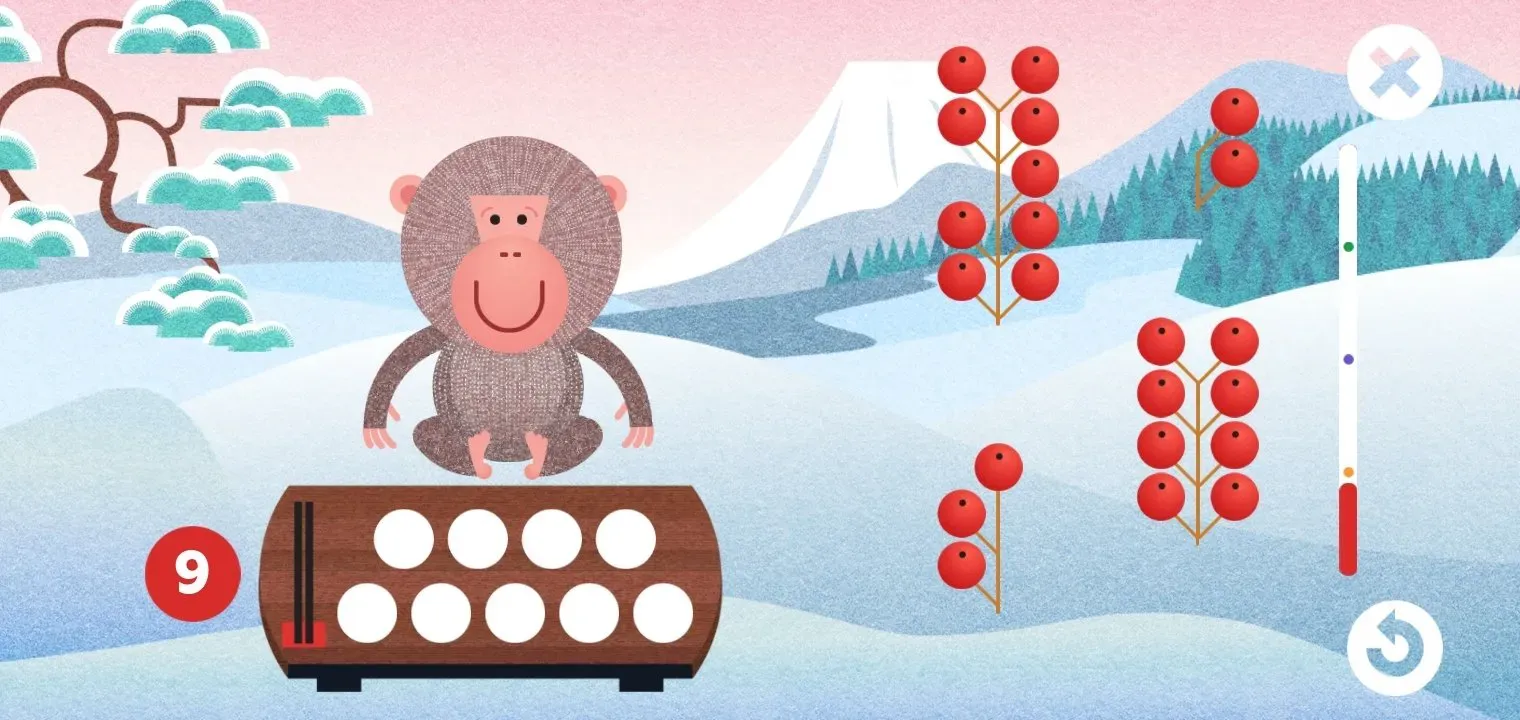
Why it's great
Funexpected Math introduces kids to math through playful puzzles, games, and interactive stories that spark curiosity and creativity. Instead of rote drills, it focuses on exploration and discovery, making abstract ideas feel concrete and engaging. For ADHD learners, the short puzzles, calm visuals, and hands-on play provide just the right balance of stimulation and focus.
What sets it apart
- Designed for ages 3–7, covering early concepts like number sense, shapes, logic, and problem-solving.
- Uses short, game-like puzzles—perfect for ADHD attention spans.
- Emphasizes creative problem-solving and mathematical thinking, not memorization.
- Multisensory design (visuals, interactions, and playful animations) keeps learning fun.
- Calm color schemes, serene music, and very selective use of sounds and animations – all avoid sensory overload or overstimulation.
- Encourages curiosity and resilience by letting kids experiment and try again without penalty.
Best for
🎯 Kids ages 3–7, especially ADHD learners who learn best through short puzzles, exploration, and visual play
🧠 Skills built: Number sense, logical reasoning, early geometry, problem-solving, attention regulation, and flexible thinking
👉 Best suited if your child thrives on exploration, discovery, and short, fun challenges instead of drills.
Available on
📱 iOS, Android
3. Beast Academy
Comic style math adventure
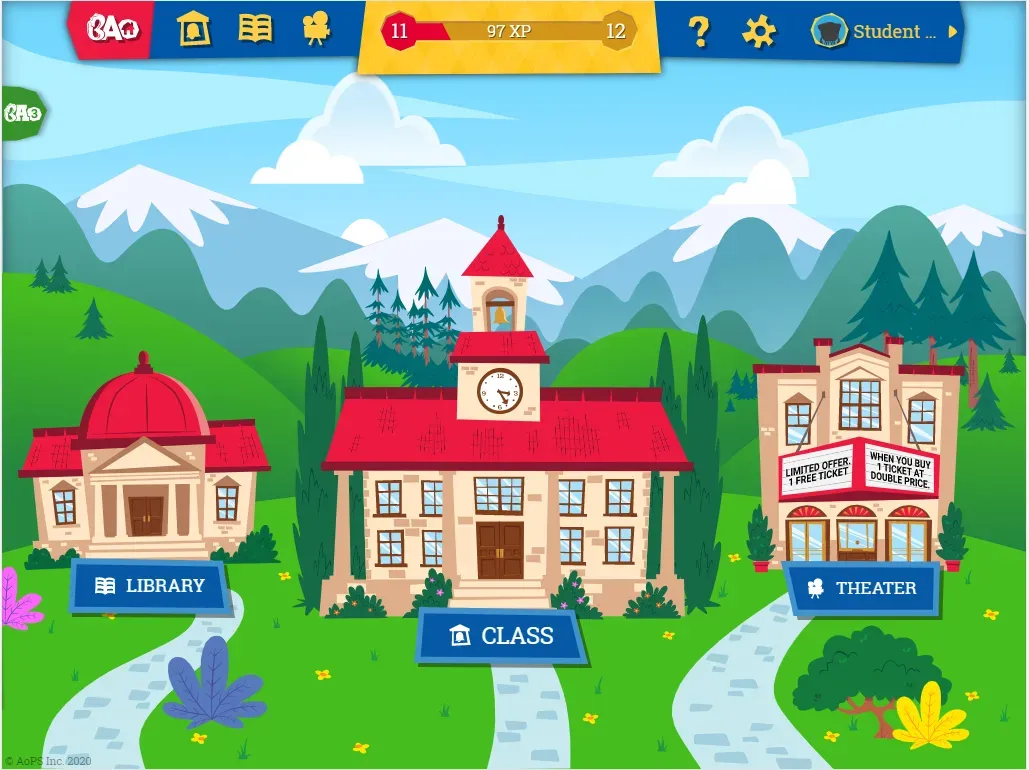
Why it's great
Beast Academy turns math into an adventure with comic-style lessons and interactive puzzles that make even tough concepts fun to explore. Kids learn from quirky monster characters who explain math step by step, making rigorous content more approachable. For children with ADHD, the combination of storytelling, visuals, and active problem solving keeps learning lively and engaging.
What sets it apart
- Covers grades 1–8 with a mastery-based approach that builds deep understanding, not just memorization.
- Comic-style guidebooks and illustrations break down concepts into short, digestible chunks, ideal for ADHD attention spans.
- Interactive practice problems and puzzles encourage persistence and flexible thinking.
- Offers online live classes taught by expert instructors, giving kids real-time guidance and structure.
- Choice of formats, self-paced online, print books, or teacher-led classes, so families can pick what works best.
Best for
🎯 Gifted learners and ADHD kids ages 6–13 who thrive with puzzles, stories, and interactive lessons
🧠 Skills built: Problem-solving, logical reasoning, conceptual mastery, focus, and perseverance
👉 Best suited if your child thrives on visual storytelling and puzzles, especially ADHD learners who get hooked by comics and challenges.
Available on
📱 Web platform (desktop & tablet)
4. Math Makers
Puzzle powered math adventures
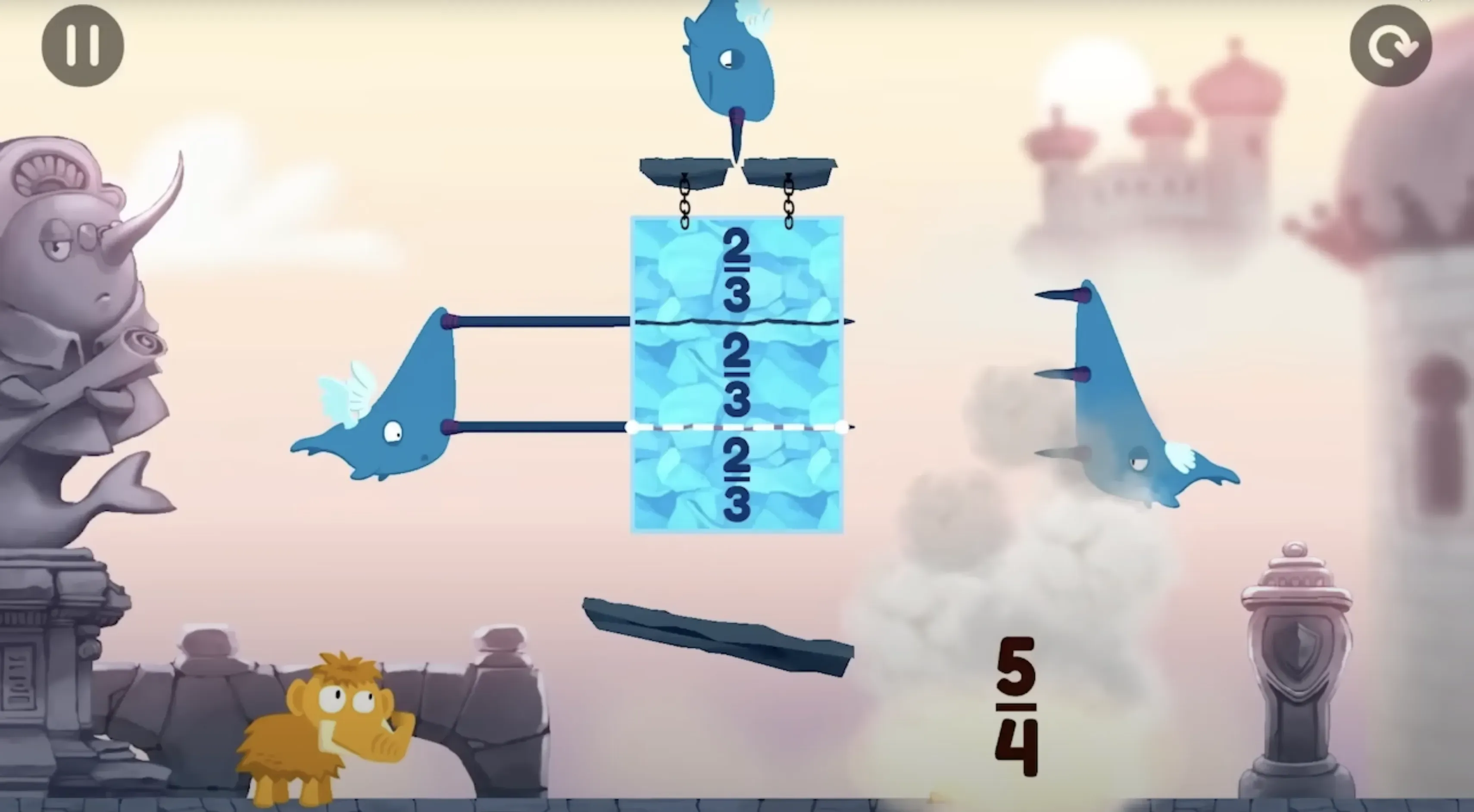
Why it's great
Math Makers turns math into a hands-on puzzle adventure where kids explore, build, and solve problems in playful, story-driven worlds. Instead of drills, it uses interactive physics-based puzzles that let children experiment with numbers and concepts. For ADHD learners, the exploratory gameplay and cause-and-effect design keep attention high while making math feel natural and fun.
What sets it apart
- Designed for grades K–6, focusing on early math foundations like addition, subtraction, fractions, and problem-solving.
- Uses interactive puzzles and stories instead of traditional quizzes.
- Encourages exploration and creativity, helping ADHD kids stay engaged without pressure.
- Builds conceptual understanding through play and experimentation, not memorization.
- Supports flexible, self-paced learning with no timers—reducing stress for ADHD learners.
Best for
🎯 Kids in grades K–6, especially ADHD learners who learn best through playful exploration and puzzles
🧠 Skills built: Number sense, problem-solving, logical reasoning, fractions, addition/subtraction, perseverance
👉 Best suited if your child thrives on hands-on learning and storytelling instead of worksheets or drills.
Available on
📱 iOS, Android, Web
5. DragonBox Math
Puzzle-based math adventures
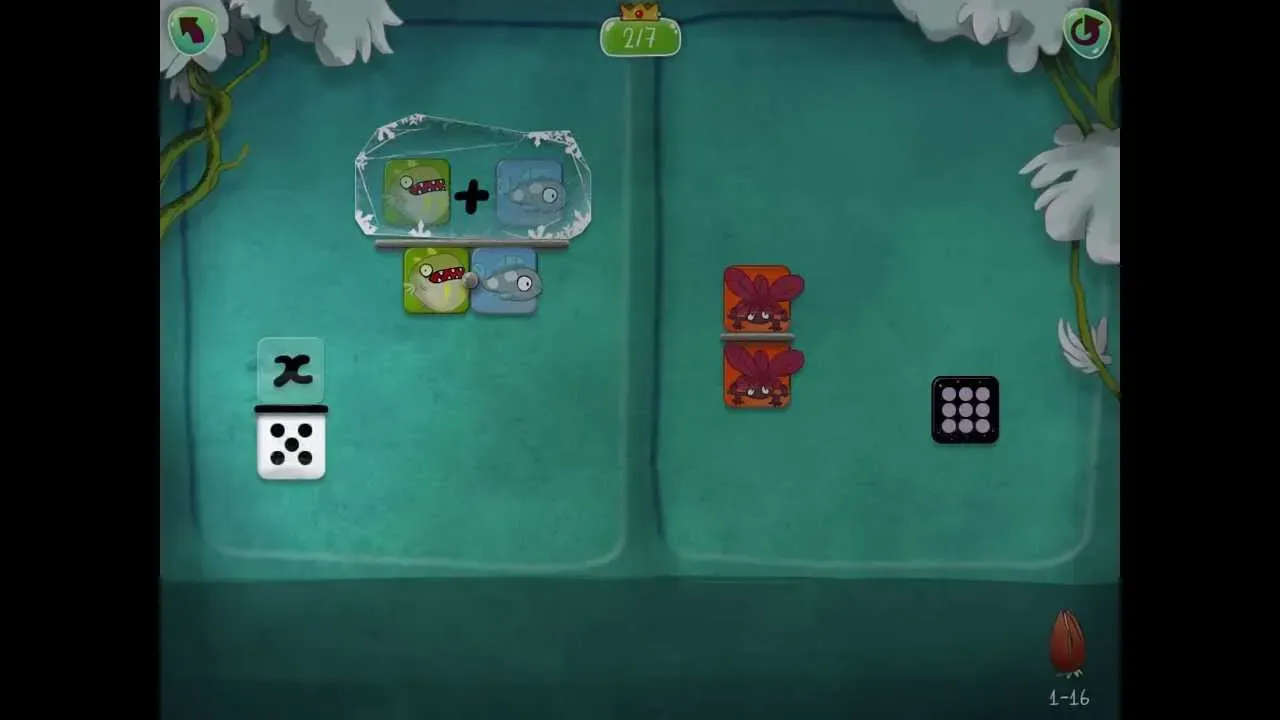
Why it's great
DragonBox turns tricky math concepts into fun, puzzle-like games that kids actually want to play. Each app in the DragonBox series focuses on a specific math skill like numbers, algebra, or geometry using interactive challenges to teach concepts step by step. For ADHD learners, the playful design, immediate feedback, and short puzzle sequences help keep focus high while reducing the stress often tied to math.
What sets it apart
- Offers a series of apps (DragonBox Numbers, Big Numbers, Algebra 5+, Algebra 12+, Elements, etc.), each targeting a different concept.
- Uses visual, story-driven puzzles instead of traditional lessons or drills.
- Breaks learning into short, game-like challenges, ideal for ADHD attention spans.
- Teaches deeper concepts (like algebraic thinking) in a way that feels natural and fun.
- Encourages exploration and discovery, letting kids learn at their own pace without time pressure.
Best for
🎯 Kids in ages 4–12+, especially ADHD learners who thrive on short puzzles, stories, and visual exploration
🧠 Skills built: Number sense, algebraic thinking, geometry, logical reasoning, problem-solving, and flexible math strategies
👉Best suited if your child gets bored with drills and needs math presented as fun puzzles and discoveries.
Available on
📱 iOS, Android
6. Todo Math
Daily math practice for early learners
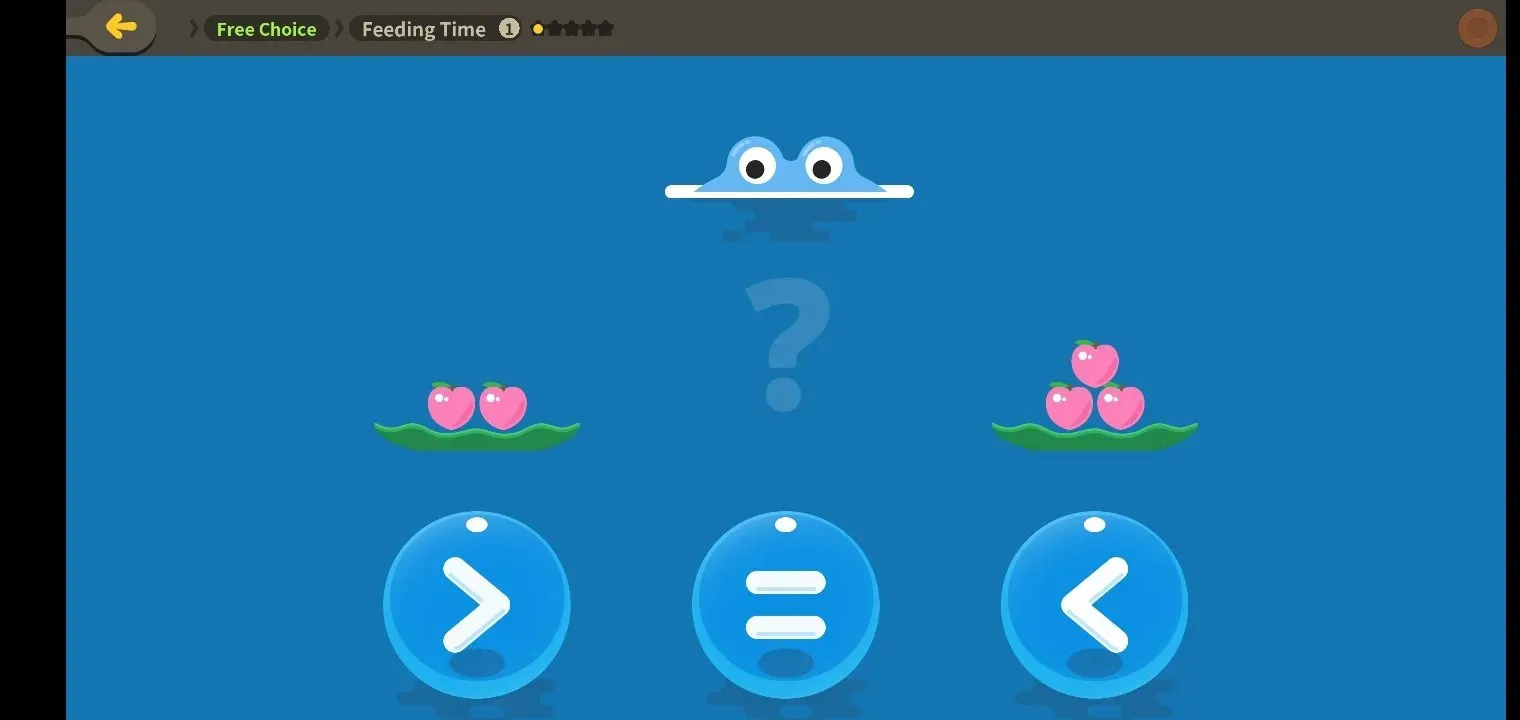
Why it's great
Todo Math is designed specifically for early elementary learners, offering over 2,000 interactive math activities across a wide range of skills. Its short, colorful lessons and daily math challenges make practice fun and approachable. For ADHD learners, the structured daily routine, adaptive pacing, and multisensory activities help build consistency without overwhelming them.
What sets it apart
- Covers grades Pre-K to 2, including counting, addition, subtraction, time, money, and early geometry.
- Provides daily math practice with short, engaging challenges that match ADHD attention spans.
- Features adaptive difficulty so kids progress at their own pace.
- Includes visuals, audio cues, and interactive puzzles, which appeal to different learning styles.
- Rewards and progress tracking keep kids motivated while showing clear growth.
Best for
🎯 Kids in Pre-K through Grade 2, especially ADHD learners who benefit from short, structured, and colorful daily practice
🧠 Skills built: Counting, number sense, early operations, time, money, shapes, math confidence, attention regulation
👉 Best suited if your child is in early grades and needs a structured daily routine with fun, bite-sized math activities.
Available on
📱 iOS, Android
7. BuzzMath
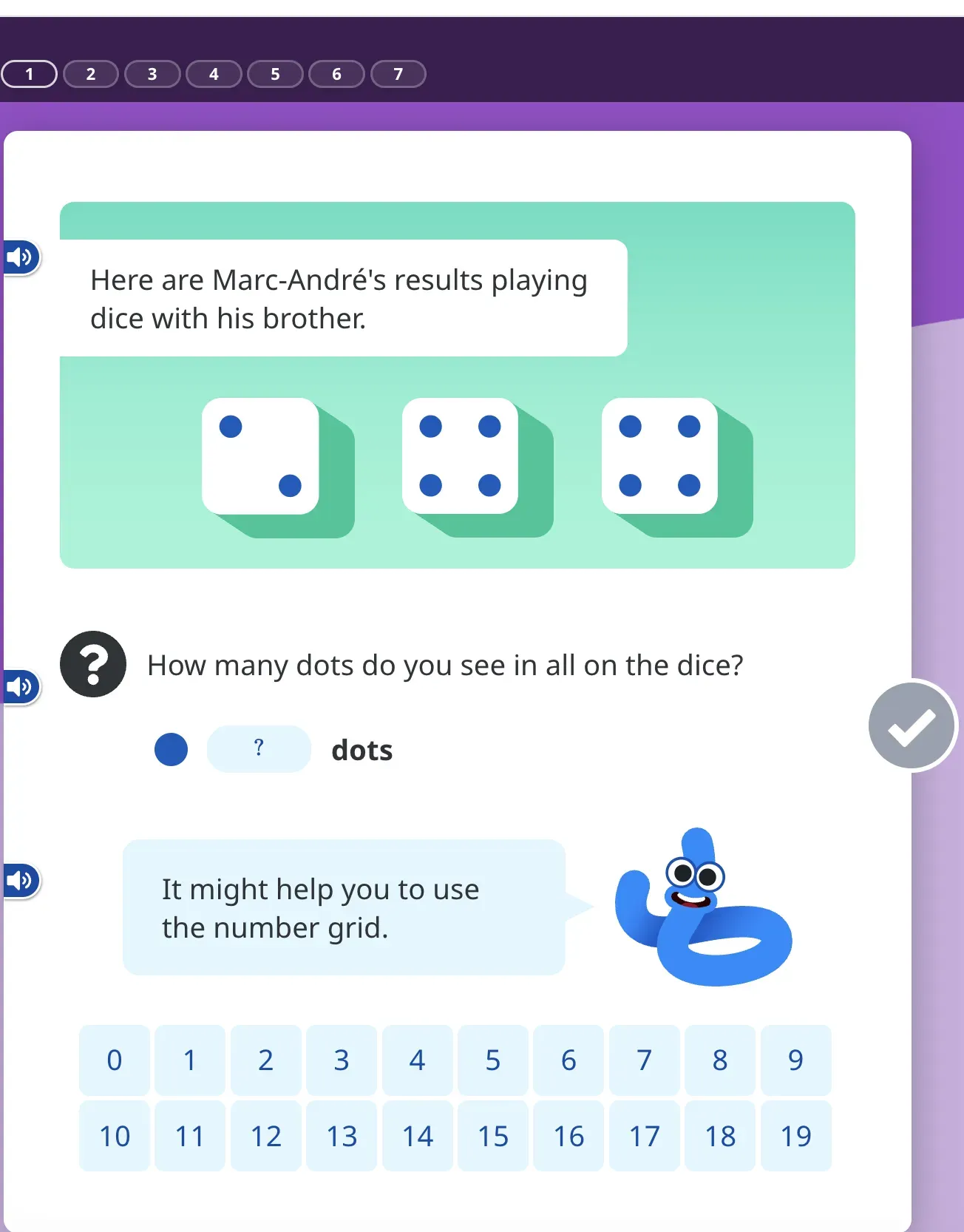
Why it's great
BuzzMath is a curriculum aligned math practice platform for elementary and middle school students that emphasizes problem-solving and skill mastery. With thousands of interactive exercises and instant feedback, it helps kids practice at their own pace. For ADHD learners, the short, focused activities, adaptive progression, and immediate responses make math practice structured yet engaging.
What sets it apart
- Covers grades 6–8 math with over 3,000+ interactive exercises aligned to Common Core and other standards.
- Focuses on practice and mastery, letting students retry questions until they succeed.
- Provides instant feedback and step-by-step solutions, supporting ADHD learners who need quick correction and reinforcement.
- Tracks progress for both teachers and parents with detailed reports.
- Offers built-in missions and goals, giving students a sense of progression and achievement.
Best for
🎯 Students in grades 6–8, especially ADHD learners who benefit from short, retry-friendly practice sessions with immediate feedback
🧠 Skills built: Algebra readiness, fractions, decimals, equations, problem-solving, perseverance, and confidence
👉 Best suited if your child is in middle school and needs structured, curriculum-aligned practice with instant feedback and retry options.
Available on
📱 Web
8. Elephant Learning Math Academy
Personalized math that fits your child.
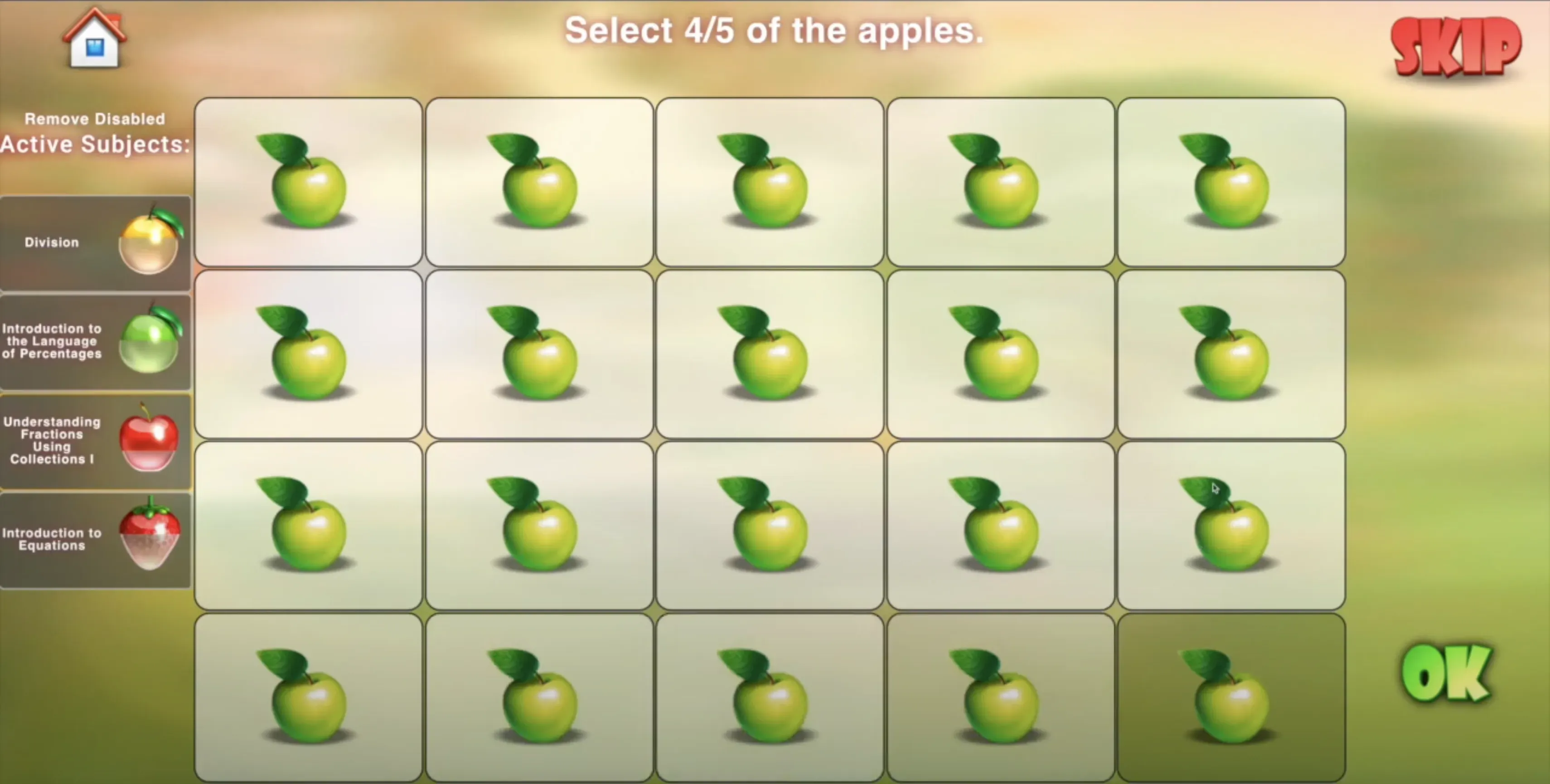
Why it's great
Elephant Learning Math Academy is a personalized math program that guarantees children will learn a year’s worth of math in just three months with 30 minutes a week. Its adaptive system pinpoints exactly what a child knows and creates a custom learning path to close gaps. For ADHD learners, the short practice sessions, instant feedback, and structured progression make math both manageable and motivating.
What sets it apart
- Covers ages 2–16, from early counting to algebra readiness.
- Uses a placement test to identify gaps and builds a personalized curriculum for each learner.
- Focuses on conceptual understanding rather than rote memorization.
- Requires only 10 minutes a day, 3 days a week, which works well for ADHD attention spans.
- Parents get detailed progress reports that show exactly what concepts their child has mastered.
Best for
🎯 Kids ages 2–16, especially ADHD learners who need short, structured sessions with personalized pacing.
🧠 Skills built: Counting, number sense, operations, algebra readiness, problem-solving, logical reasoning, and math confidence
👉 Best suited if your child struggles with math gaps and benefits from short, highly targeted lessons with clear progress tracking.
Available on
📱 Web (browser-based), iOS, Android
9. GeoGebra
Interactive math visualization
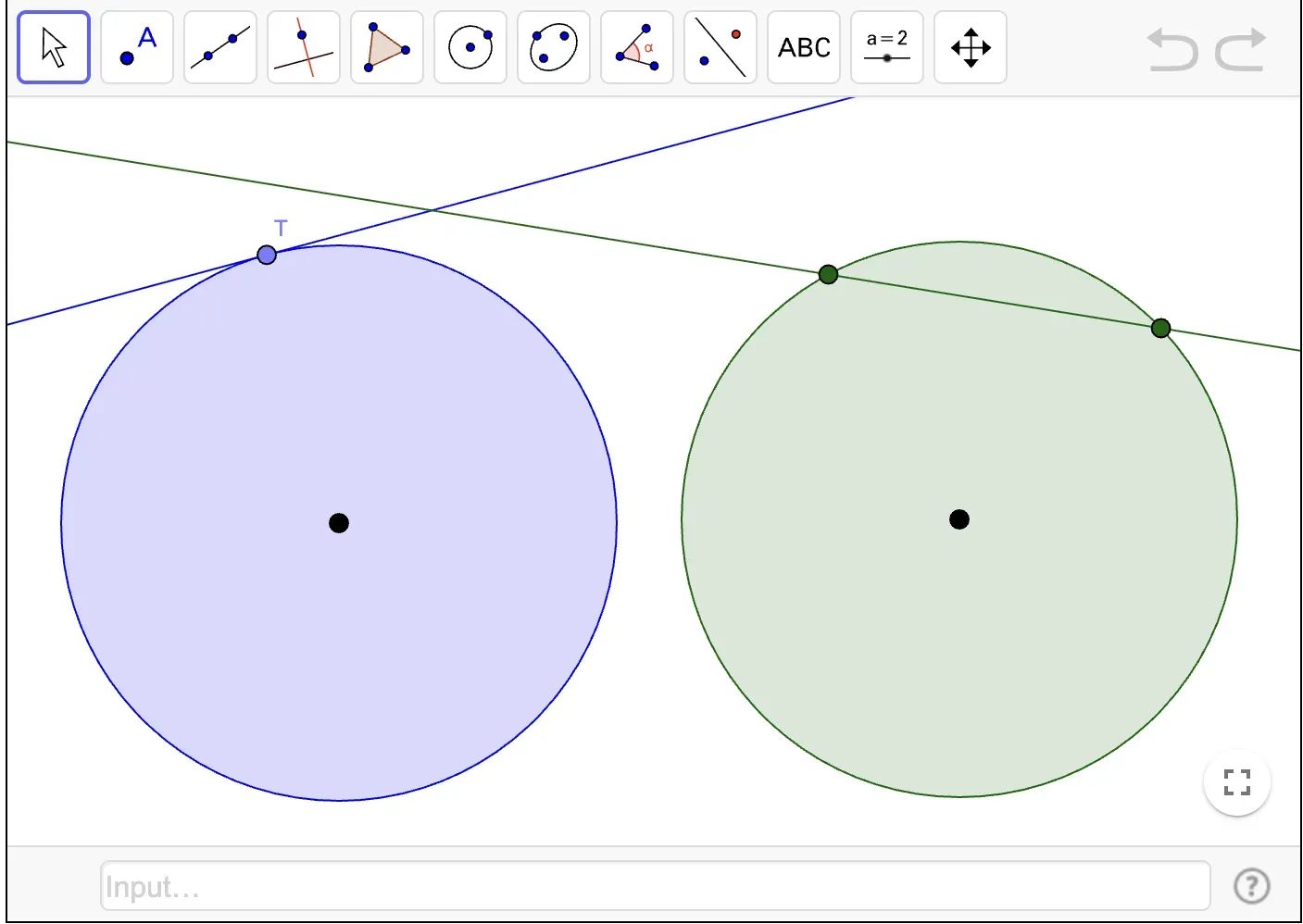
Why it's great
GeoGebra is an interactive math tool that lets kids explore math through visual models, graphs, and hands-on activities. For students with ADHD, the dynamic visuals and ability to manipulate shapes, numbers, and equations make abstract concepts more concrete, engaging, and easier to focus on.
What sets it apart
- Covers a wide range of math from basic geometry to advanced algebra and calculus.
- Lets kids interact with math in real time by dragging, reshaping, and experimenting with objects.
- Encourages exploration and discovery, which can be especially motivating for ADHD learners who thrive with hands-on experiences.
Best for
🎯 Students in grades 6–12 (though some tools can be used as early as upper elementary); great for ADHD learners who benefit from interactive, visual, and exploratory approaches
🧠 Skills built: Conceptual understanding of geometry, algebra, graphing, visualization skills, problem-solving, and mathematical reasoning
👉 Best suited if your child learns better through hands-on exploration and visuals, turning abstract math into something they can see and manipulate.
Available on
📱 Web, iOS, Android, Windows, Mac
10. Math Learning Center
Working with visual math manipulatives
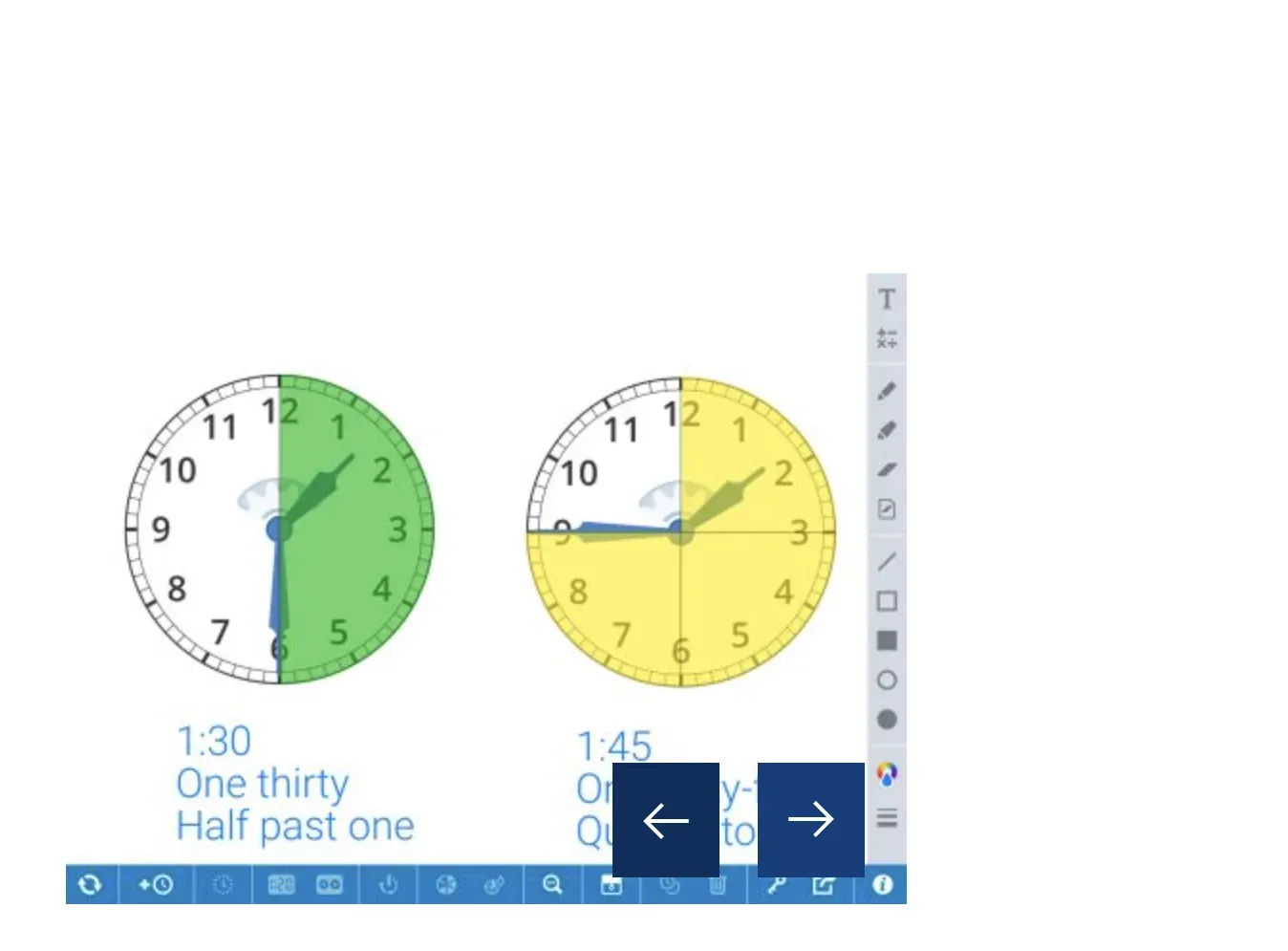
Why it's great
The Math Learning Center offers a collection of free virtual math manipulatives (like number lines, ten-frames, pattern blocks, and fraction pieces) that help kids visualize and explore math concepts. For ADHD learners, these hands-on, interactive tools make abstract ideas more concrete and engaging, while the open-ended format encourages curiosity without pressure.
What sets it apart
- Completely free and ad-free, created by a nonprofit dedicated to math education.
- Covers K–5 core math concepts through visual, interactive tools.
- Focuses on manipulatives over memorization, making math more accessible for ADHD students who benefit from tactile, visual learning.
- Works well for both independent practice and classroom use.
- Encourages exploration at a child’s own pace, with no timers or high-stakes testing.
Best for
🎯 Kids in grades K–5, especially ADHD learners who need visual supports and interactive tools to grasp abstract math concepts
🧠 Skills built: Number sense, fractions, geometry, math models, visual reasoning, attention through interactive exploration
👉 Best suited if your child learns well with hands-on visuals instead of worksheets or rote drills.
Available on
📱 Web, iOS, Android
Best ELA (English Language Arts) learning apps
11. Epic
The digital library for kids
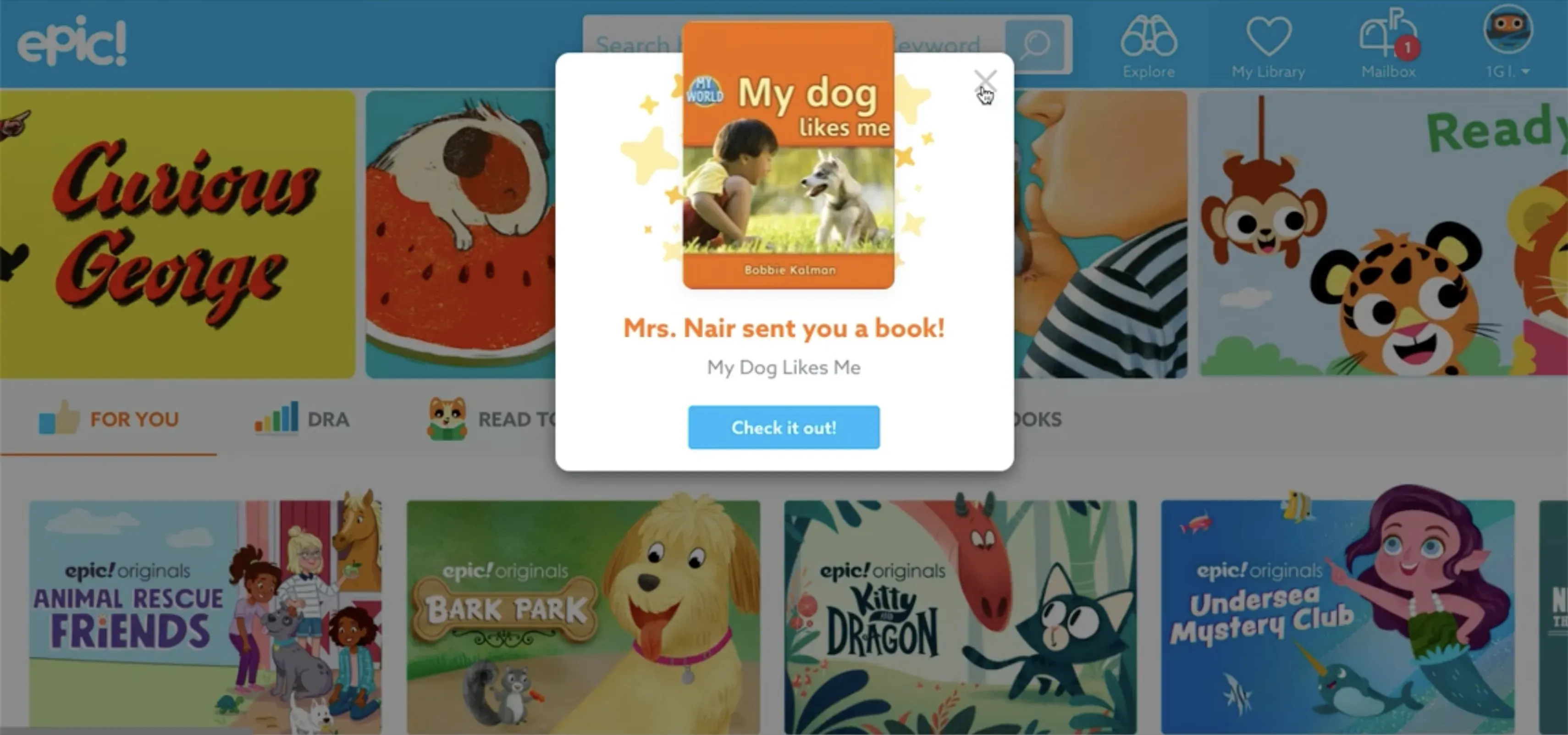
Why it's great: Epic is a digital reading platform designed to inspire a love of reading and learning in children. With a massive library of ebooks, audiobooks, and videos, it provides a safe and engaging environment for kids to explore their interests and build essential literacy skills.
Here is an overview of the Epic reading app for your listicle.
What sets it apart
- Vast, curated library of over 40,000 titles from major publishers.
- Interactive "Read-To-Me" books with professional narration and sound effects.
- Gamification, with badges and points, to motivate kids to read.
- Personalized recommendations to help discover new books.
Best for
🎯 Kids ages 3–12, especially those who need variety and options to stay engaged.
🧠 Skills built: Vocabulary, comprehension, and a love of books.
👉 Best suited if your child is a reluctant reader who needs interactive options (like audiobooks or badges) to stay motivated.
Available on
📱 Web, iOS, Android
12. Teach Your Monster to Read
Phonics Made Playful
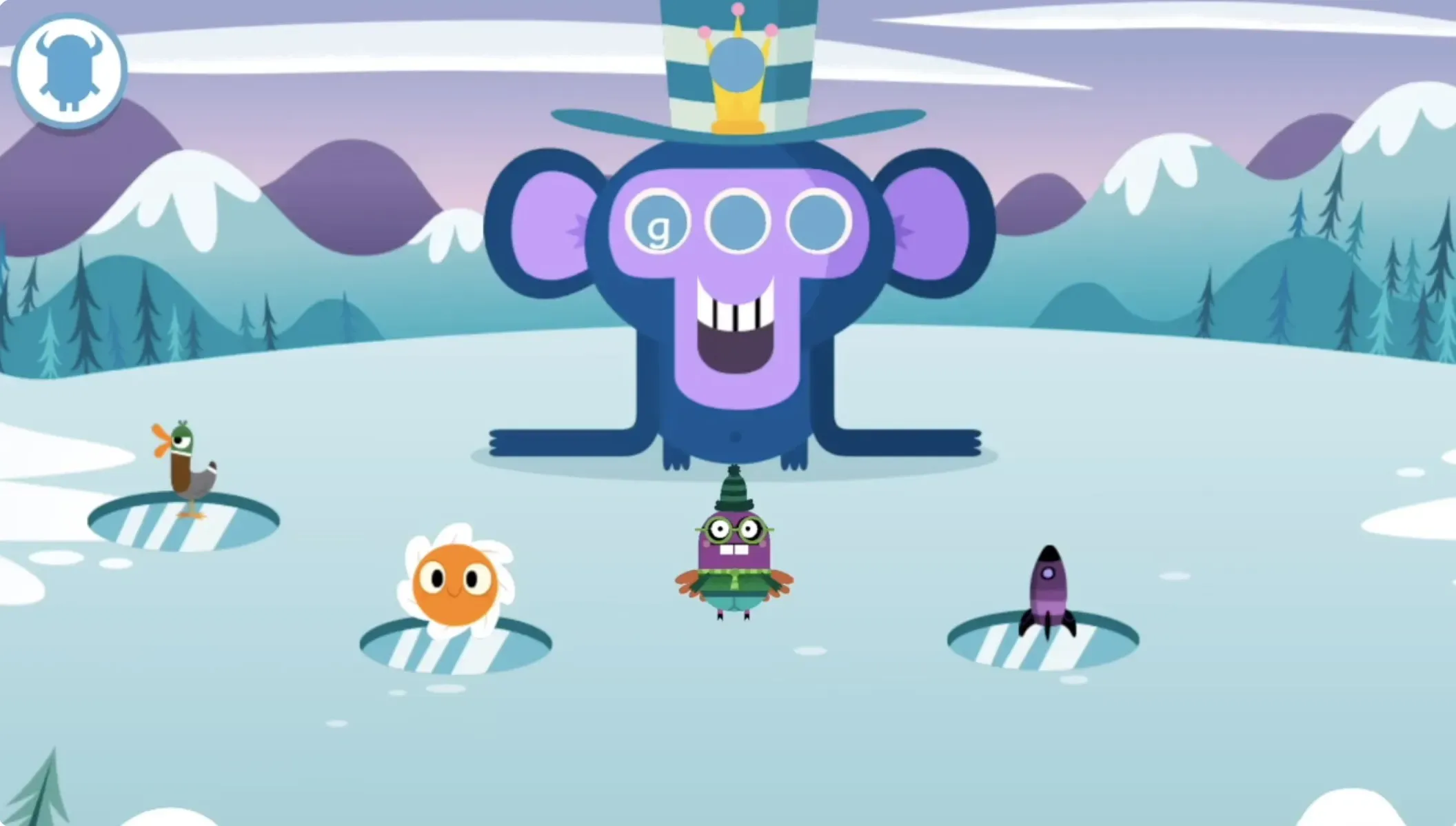
Why it's great
This app turns learning to read into an adventure. Kids design their own cute little monster and then guide it through different worlds, completing challenges to unlock new skills. The game teaches phonics wrapped in fun gameplay that keeps kids coming back. For ADHD learners, the short levels, bright visuals, and silly monster rewards make practice feel less like work and more like play.
What sets it apart
- Backed by reading experts and aligned with early phonics curriculums.
- Let kids create and customize their own monster letting personal ownership boost motivation.
- Structured like a game, with quests and rewards that keep attention hooked.
- Builds from letters and sounds all the way to full sentences.
Best for
🎯 Ages 3–6, early readers who are just starting with phonics or need extra practice.
🧠 Skills built: Letter recognition, phonics, blending sounds, sight words, and reading fluency.
👉 Best suited if your child loves games and you want reading practice to feel like an adventure instead of a drill.
Available on
📱 Web (free), iOS, Android
13. Hooked on Phonics
The Classic, Reinvented
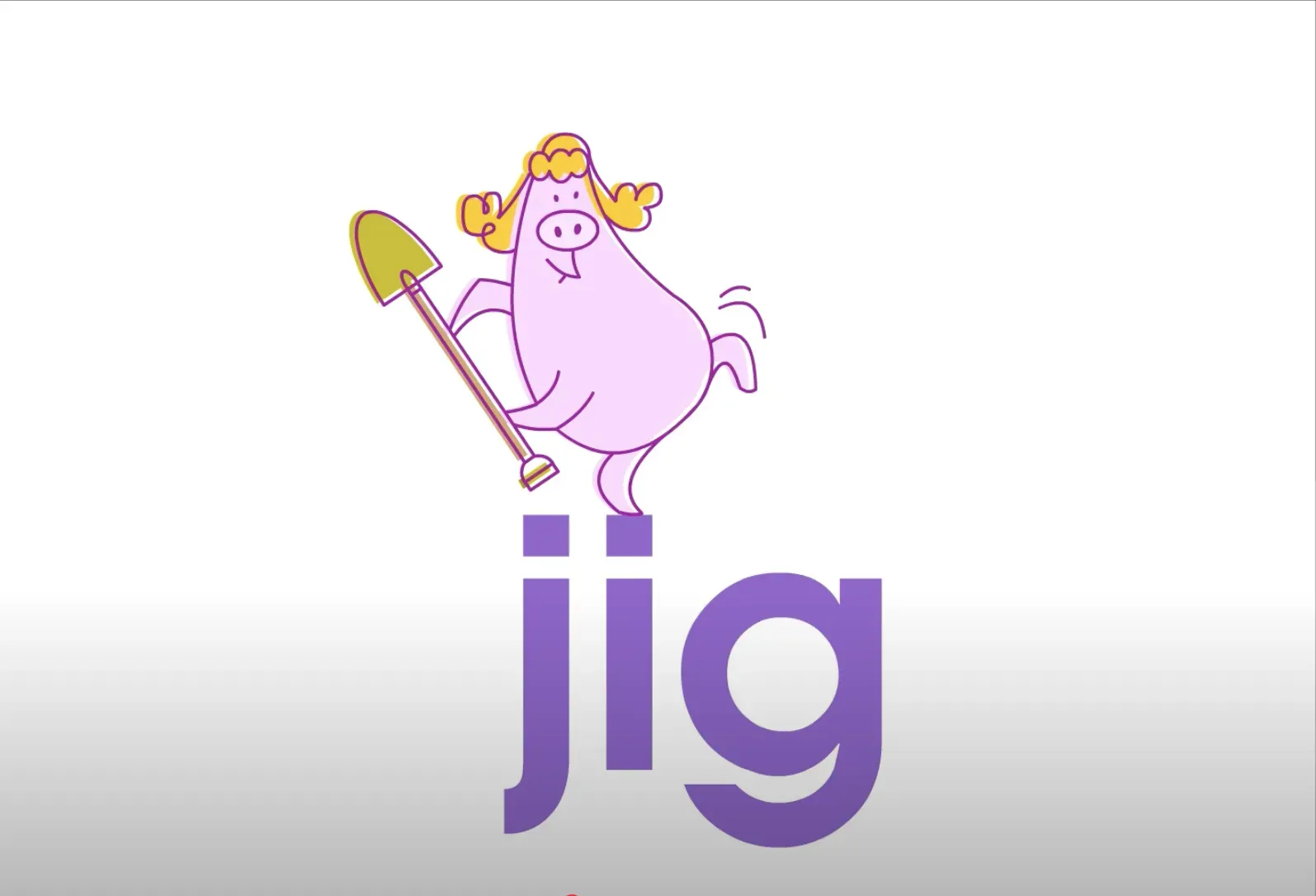
Why it's great
The app gives phonics a modern twist with songs, stories, and interactive lessons. Each session is short and structured, making it easy for kids with ADHD to focus without getting overwhelmed.
What sets it apart
- Based on a proven step-by-step phonics system that’s been around for 30+ years.
- Lessons combine songs, interactive games, and storybooks.
- Includes real books (digital + mailed physical copies) to reinforce screen learning with page-turning practice.
- Progress is easy to track, with a clear path from letters → words → sentences → full reading.
- Rewards and certificates keep motivation high.
Best for
🎯 Ages 3–8, especially kids who need a structured, no-fuss path to reading.
🧠 Skills built: Phonics, decoding, sight words, fluency, and early comprehension.
👉 Best suited if your child thrives with structure and you want a proven, systematic approach that mixes digital lessons with real books.
Available on
📱 iOS, Android, plus physical book sets via subscription
14. Novel Effect
Novel twist on read-aloud books.
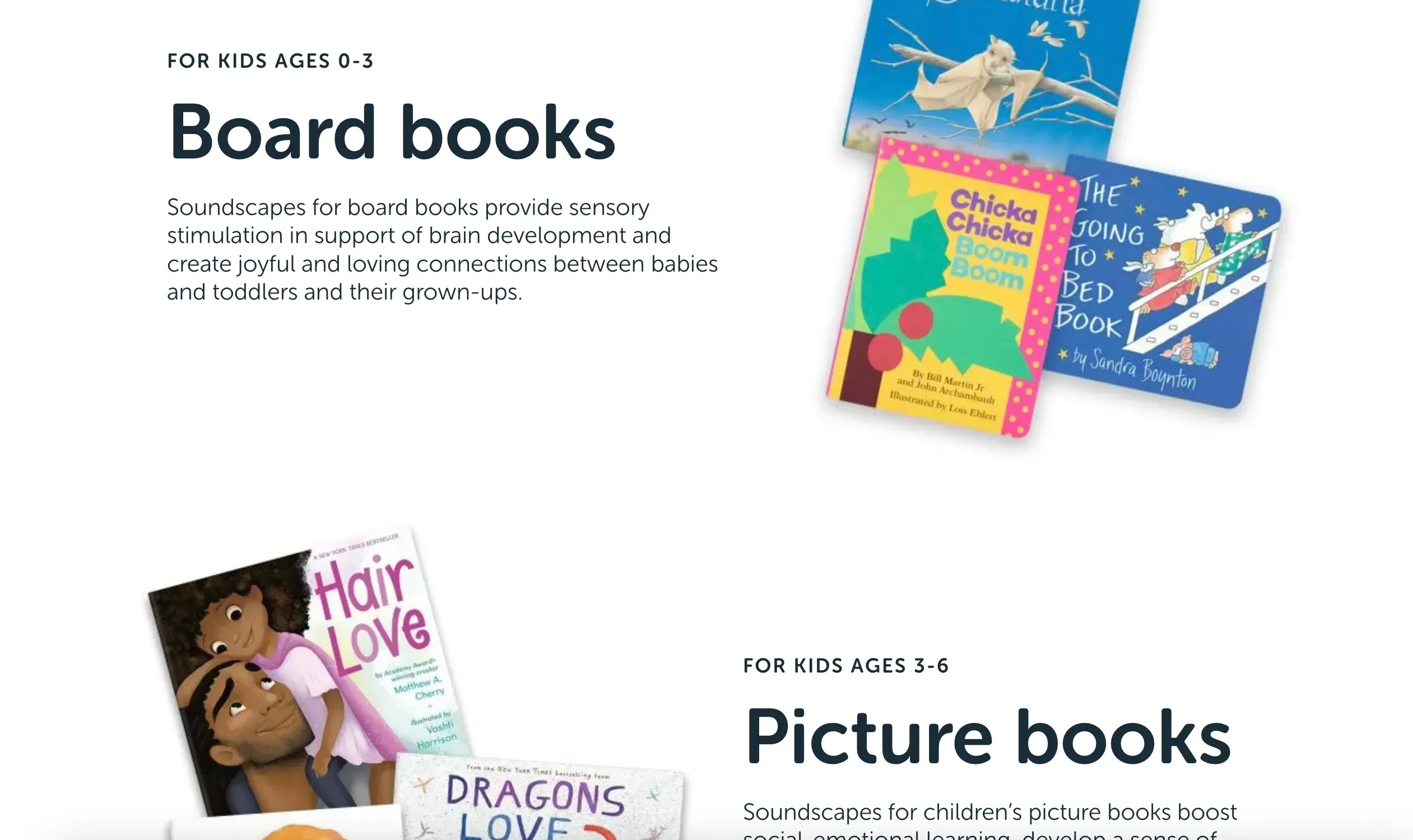
Why it's great
The app gives flips the story reading - instead of the app reading the story, it follows you - the parent - as you read the story and adds whimsical sound effects to make the stories come alive.
What sets it apart
- Brings stories alive as you read it.
- Huge library of books covered
- Covers wide range of ages from 0-10
- Follows the reader properly - to synchronize the sounds and music to the story.
Best for
🎯 Ages 0–10, especially kids who will be enthralled by sound effects accompanying every story.
🧠 Skills built: Comprehension, Reading, Imagination
👉 Best suited if your child loves stories much more when accompanied by sound effects.
Available on
📱 iOS, Android, Web
Best Science Learning Apps
Apps in this list are generally marketed as puzzle games rather than learning games, but we find them excellent learning opportunities as well, especially for kids with ADHD.
However since they are not built with kids in mind necessarily, watch out for lack of kid-safe features. (such as ads or in-app consumables). Coplaying is the safest approach.
15. Crazy Gears
Puzzles that Spark Problem-Solving
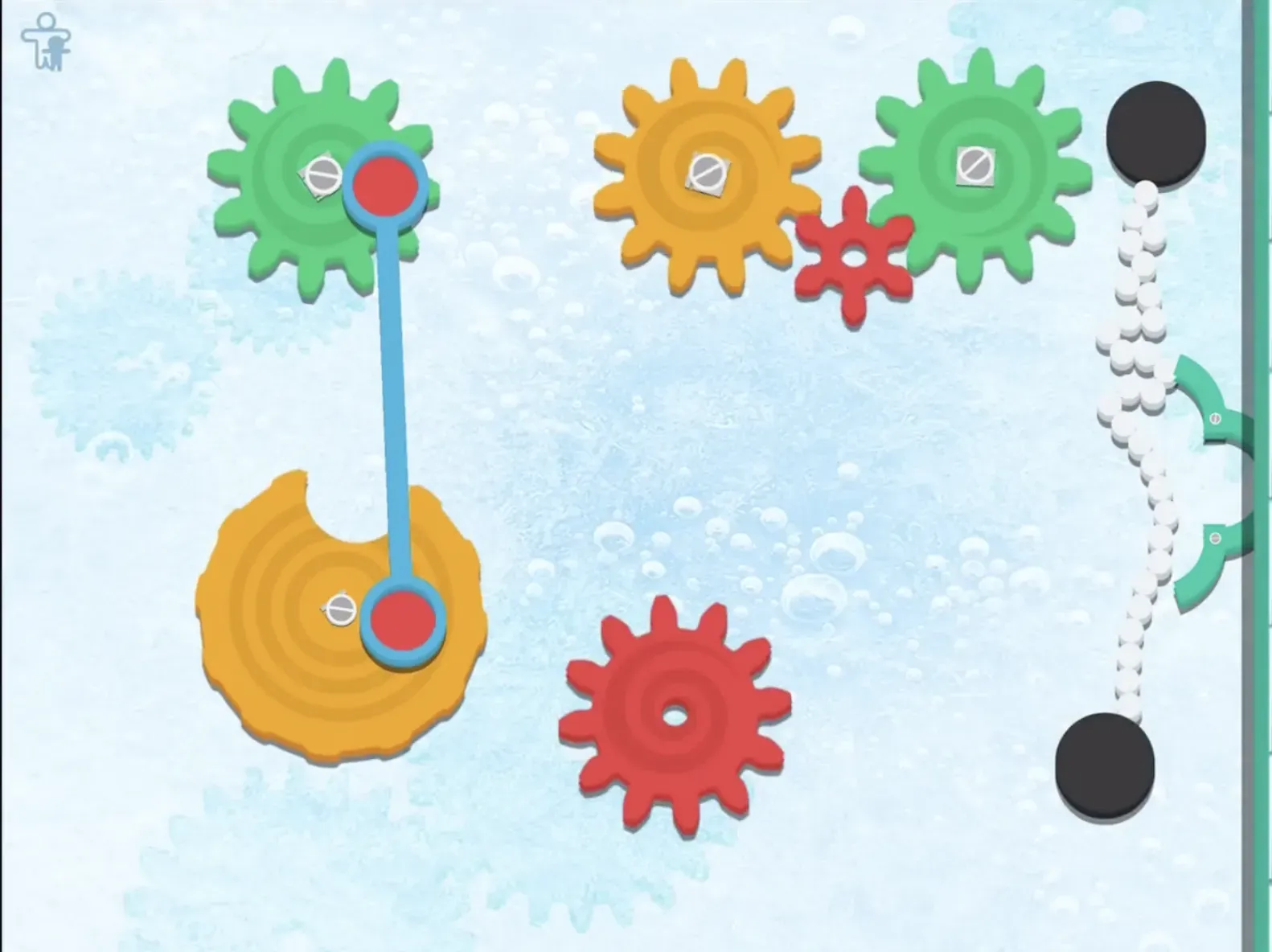
Why it's great
Crazy Gears is like a digital playground for curious minds. Kids experiment with gears, pulleys, chains, and levers to solve puzzles and move through levels. There are no instructions, kids learn by tinkering, which makes it engaging for ADHD learners who love hands-on exploration. It’s less about getting it right the first time and more about discovery and experimentation.
What sets it apart
- Teaches physics and engineering basics in a super approachable, play-based way.
- No text instructions kids learn by trying, failing, and adjusting, which builds resilience.
- Open-ended puzzles mean there’s often more than one solution.
- Levels increase in complexity, but each is short and satisfying to complete.
- Award-winning design loved by parents and teachers alike.
Best for
🎯 Ages 5–9, especially kids who love to take things apart, build, or experiment.
🧠 Skills built: Problem-solving, logic, cause-and-effect thinking, perseverance, and early STEM concepts.
👉 Best suited if your child thrives on hands-on challenges and learns best through trial-and-error play.
Available on
📱 iOS
16. Monster Physics
Build, Test, and Tinker
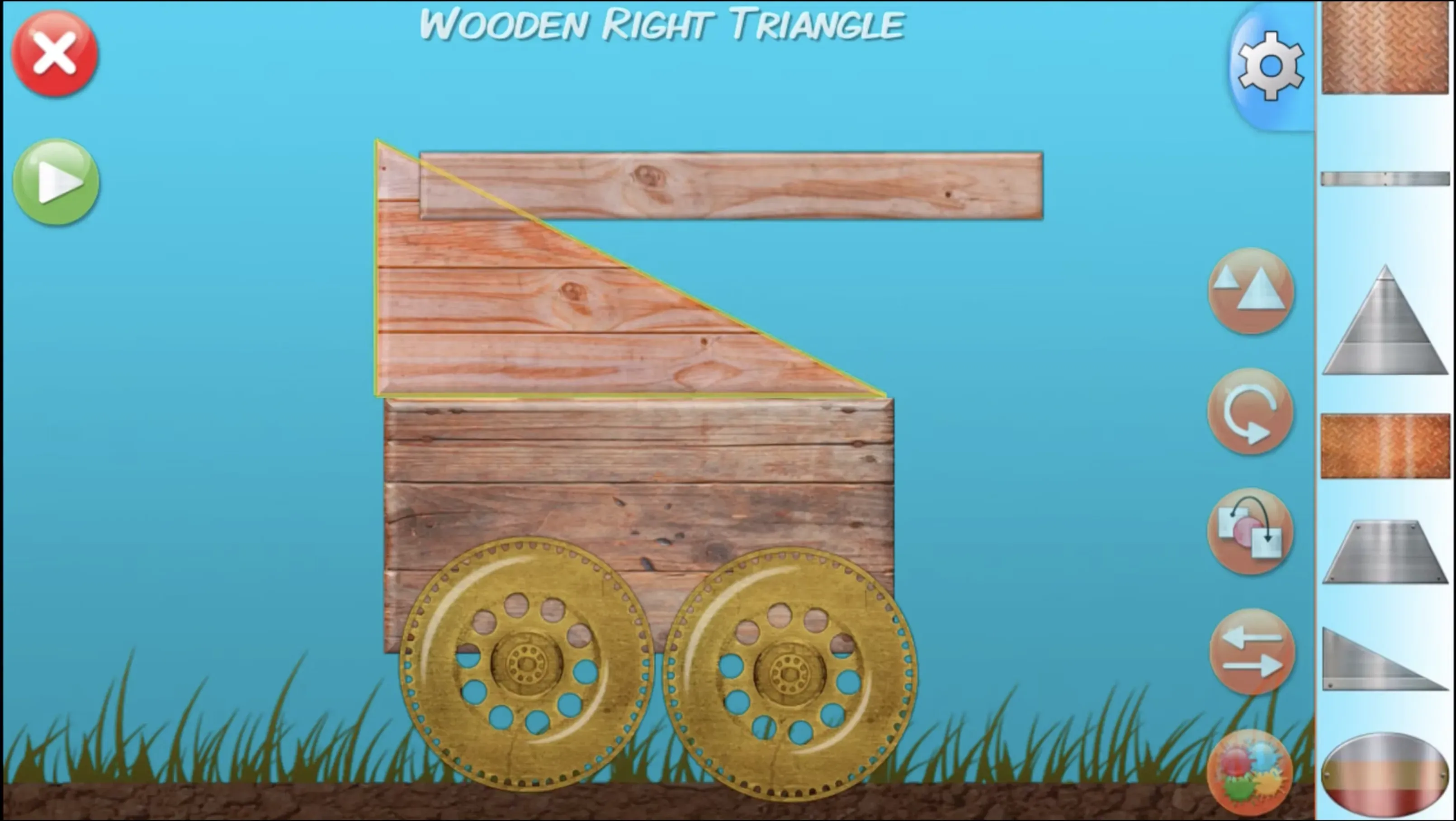
Why it's great
Monster Physics gives kids the chance to be little engineers. They get to design their own wacky machines using wheels, ropes, magnets, rockets, and more and test them out to see if they actually work. For ADHD learners, the open-ended building and quick feedback make it super engaging. It feels like play, but sneaks in tons of real STEM learning.
What sets it apart
- Lets kids design and build contraptions with 68 different parts.
- Sandbox mode encourages creativity with no wrong way to play.
- Mission challenges guide kids to solve puzzles with their inventions.
- The bright, silly monster theme keeps the mood light and fun.
- Teaches physics concepts like force, motion, balance, and energy.
Best for
🎯 Ages 6 - 12, especially kids who love LEGO, tinkering, or experimenting.
🧠 Skills built: Physics, problem-solving, creativity, logical thinking, and persistence.
👉 Best suited if your child thrives when they can build things freely and learn through trial and error.
Available on
📱 iOS
17. Simple Machines
Physics Made Hands-On
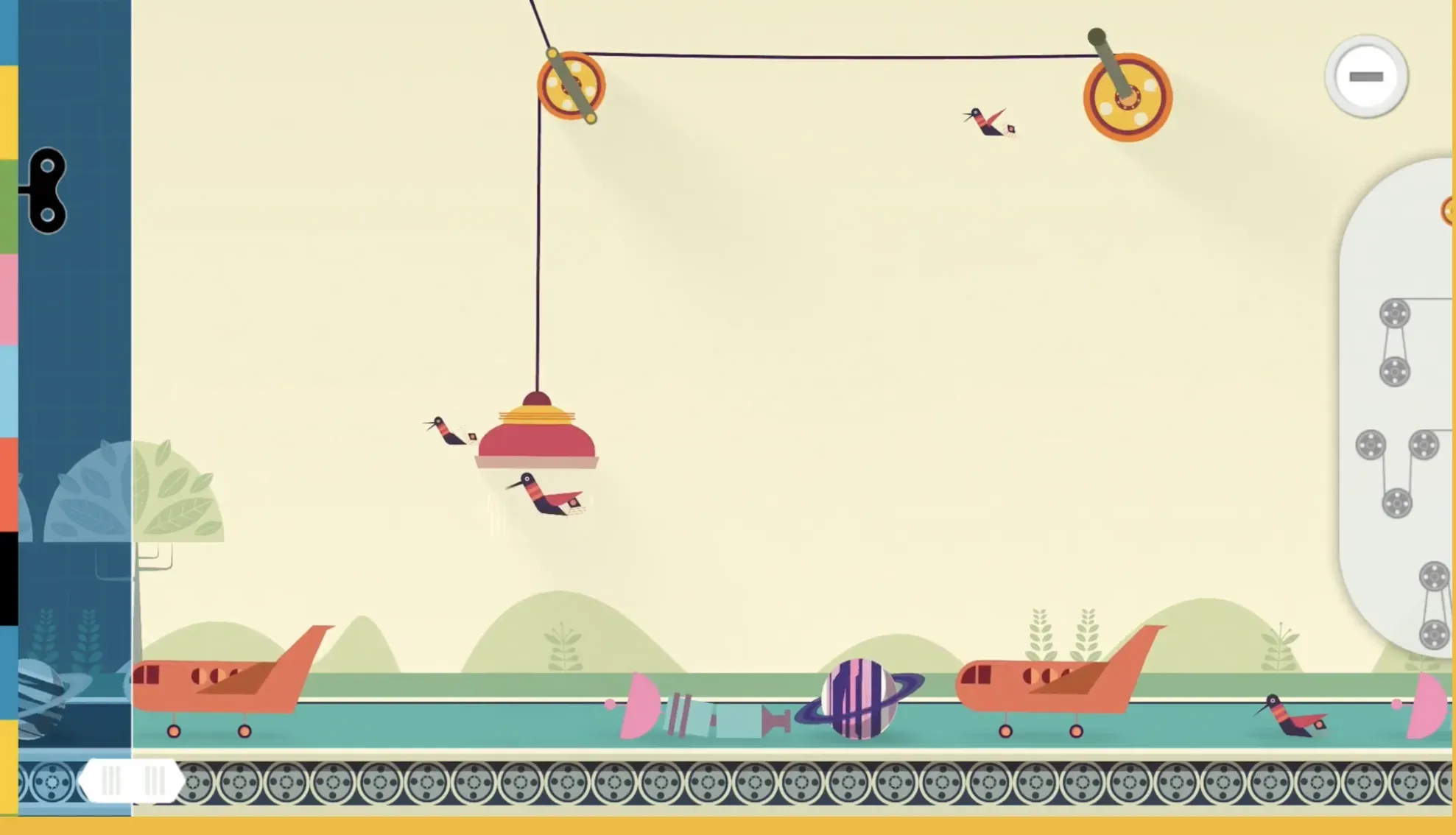
Why it's great
Simple machines makes science class come alive by letting kids play with the six classic simple machines, lever, pulley, wheel and axle, screw, wedge, and inclined plane. Instead of reading about them, kids actually use them to lift, push, and move things around in fun little experiments. For ADHD kids, the interactive, tap-and-try approach keeps them engaged far better than a worksheet ever could.
What sets it apart
- Covers real-world physics in a playful sandbox environment.
- No long instructions, kids learn by tinkering and watching what happens.
- Features quirky animations and sound effects to keep attention hooked.
- Lets kids explore open-endedly while also guiding them through challenges.
Best for
🎯 Ages 6 - 10, especially kids who like to push buttons, pull levers, and see how things work in real life.
🧠 Skills built: Cause-and-effect, problem-solving, early physics concepts, and experimentation.
👉 Best suited if your child is a hands-on learner who needs short, interactive experiences to stay engaged.
Available on
📱 iOS
18. SimpleRockets
Blast Off into Engineering
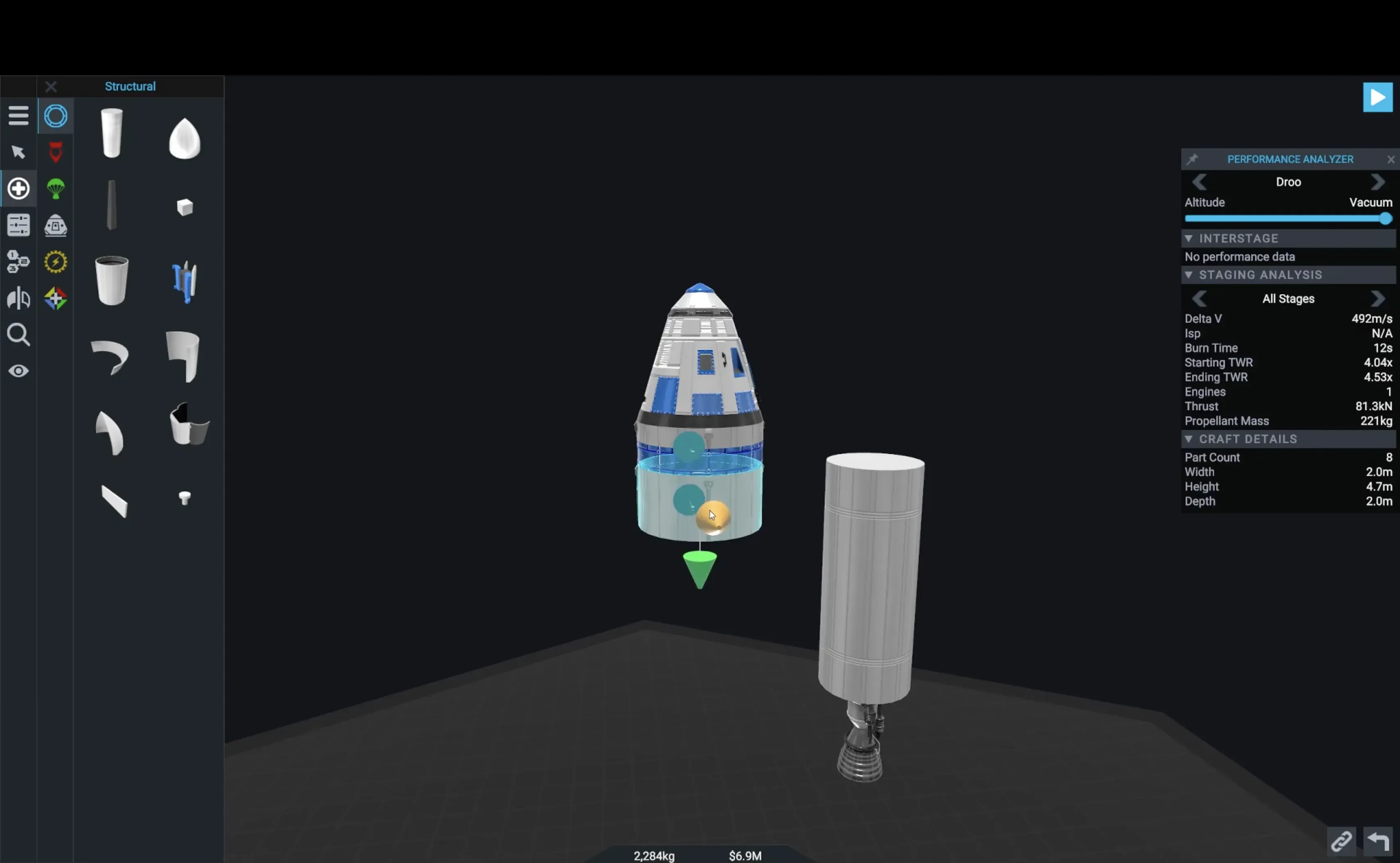
Why it's great
SimpleRockets lets kids design their own rockets, test them, and launch them into space. For ADHD learners, the freedom to build and the instant results make it exciting and motivating. It feels like play, but it’s sneaky STEM learning at its best.
What sets it apart
- Open-ended sandbox: build anything from a tiny rocket to a massive space shuttle.
- Teaches real physics concepts like thrust, drag, staging, and orbital mechanics.
- Missions and challenges give structured goals for kids who like direction.
- Explosions and epic fails are part of the fun and part of the learning.
Best for
🎯 Ages 8–14, especially space fans and kids who love to build and experiment.
🧠 Skills built: Physics, engineering design, problem-solving, resilience building
👉 Best suited if your child is fascinated by rockets, space, or building things and you want STEM learning to feel like play.
Available on
📱 iOS, Android
19. World of Goo Remastered
Engineering Meets Imagination
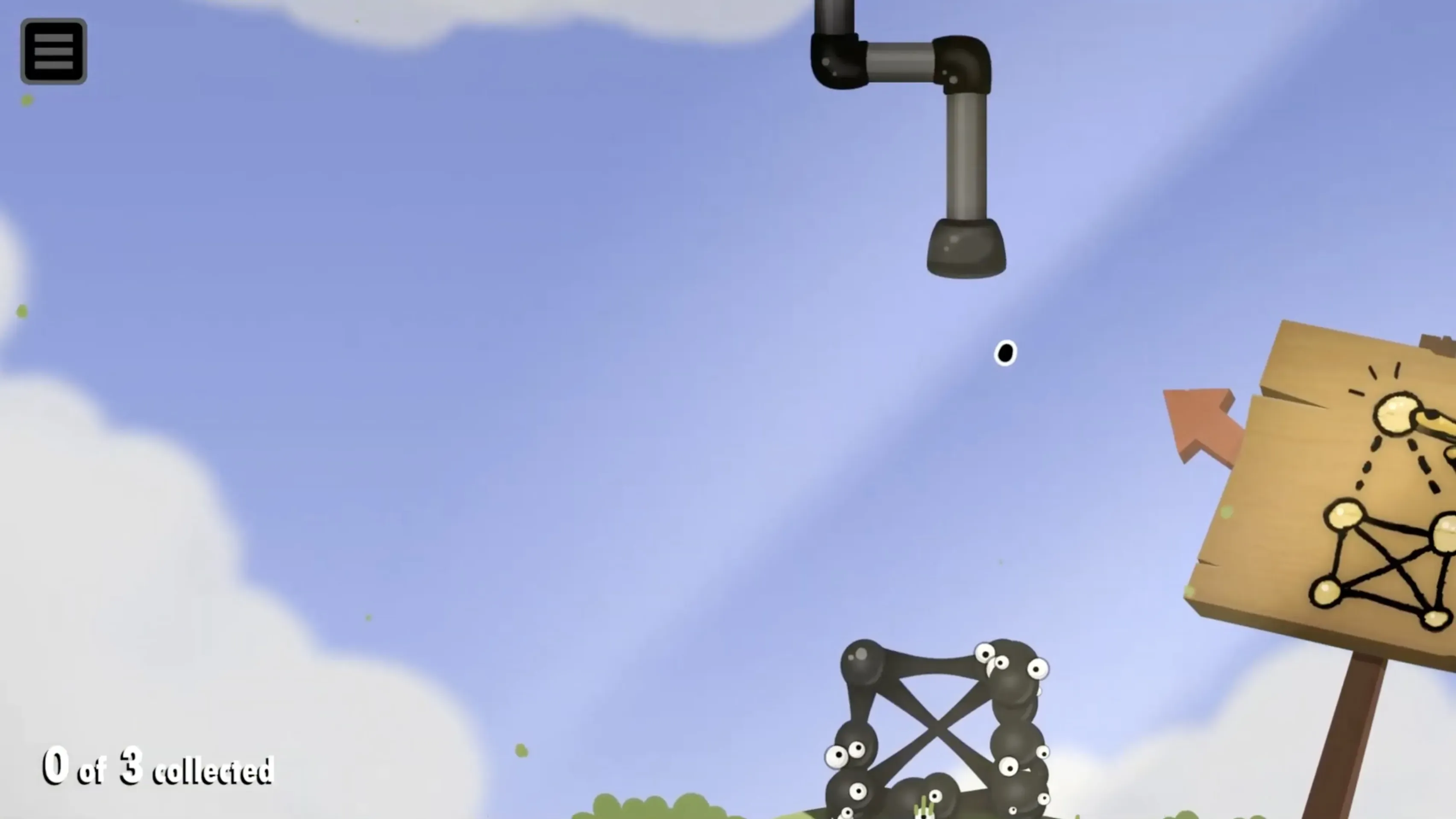
Why it's great
Kids use little ‘goo balls’ to build wobbly bridges, towers, and other structures to solve each level. For ADHD learners, the quirky humor, short puzzle levels, and endless experimenting make it both engaging and rewarding, without feeling like schoolwork.
What sets it apart
- Teaches physics, balance, and problem-solving through hands-on building.
- Each level is a quick puzzle, perfect for short attention spans.
- Silly, funny goo characters and playful sound effects keep the mood light.
- Multiple solutions encourage creativity instead of one right answer.
- Updated visuals and controls make the remastered version smooth and modern.
Best for
🎯 Ages 7–12, especially kids who enjoy building challenges and quirky humor.
🧠 Skills built: Engineering concepts, structural thinking, creativity, trial-and-error problem-solving.
👉 Best suited if your child loves puzzles and you want STEM learning wrapped in humor and play.
Available on
📱 iOS, Android, PC, Nintendo Switch
Best Multi Subject Learning Apps
20. Prodigy
Fantasy RPG adventure
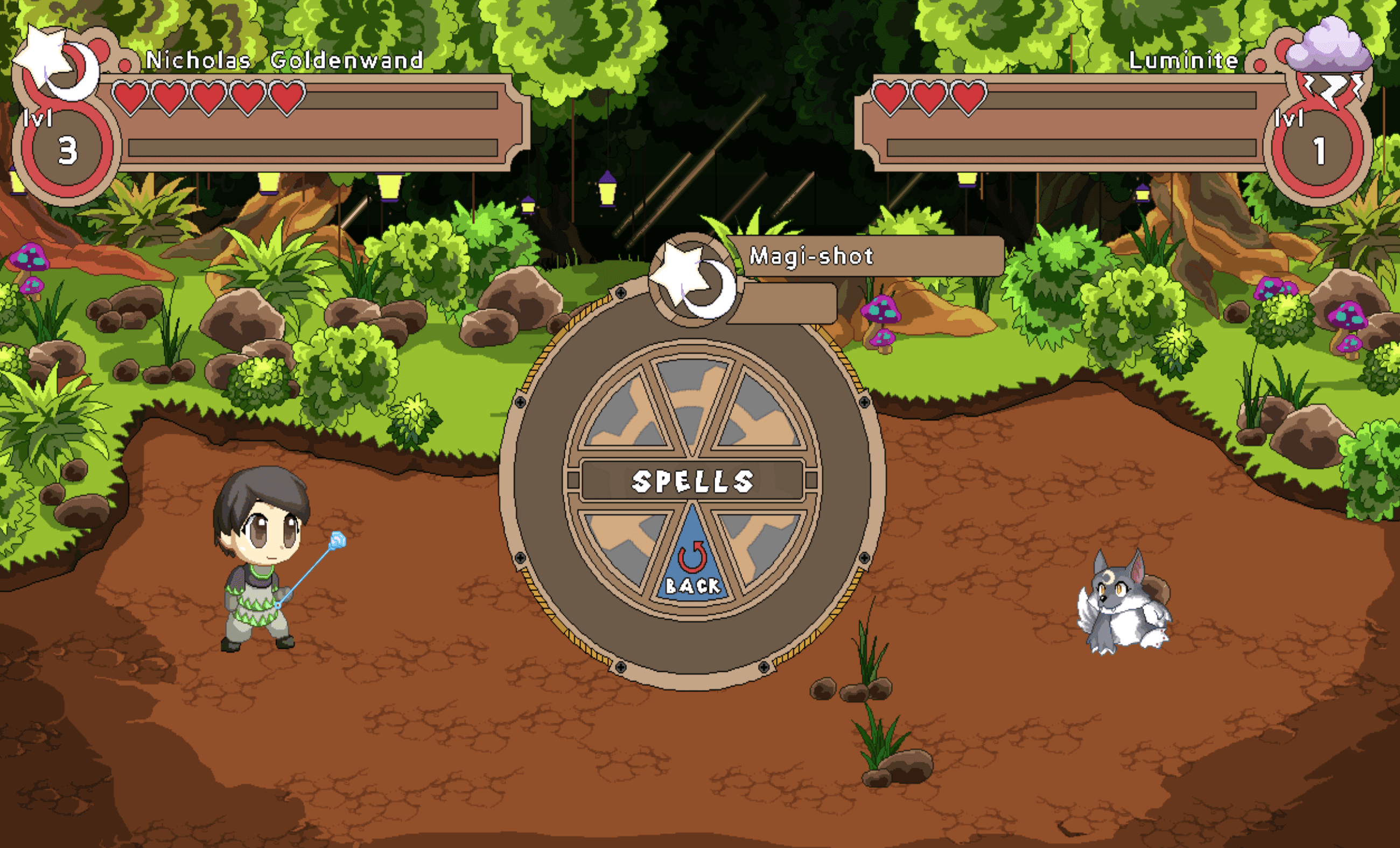
Why it's great
Prodigy turns math and reading into a role-playing adventure where kids answer questions to cast spells, battle monsters, and complete quests. For children with ADHD, this game-like structure makes math feel less like homework and more like play, keeping them engaged and motivated.
What sets it apart
- Adaptive difficulty keeps challenges in the just right zone, never too hard to frustrate or too easy to bore.
- Short, clear battles and quests match ADHD kids' need for quick, manageable bursts of focus.
- Instant feedback and rewards create a fast cause and effect loop, boosting motivation and attention.
- Progress dashboards help parents and teachers see growth and celebrate wins important for confidence building.
Best for
🎯 Kids in grades 1–8, including those with ADHD who enjoy story-driven adventures, quests, and game-like challenges
🧠 Skills built: Math fact fluency, problem-solving, logical reasoning, and attention regulation through adaptive practice
👉 Best suited if your child loves games, quests, and competition, and stays engaged by battling monsters while practicing math.
Available on
📱 iOS, Android, Web
21. SplashLearn
Playful practice for K–5
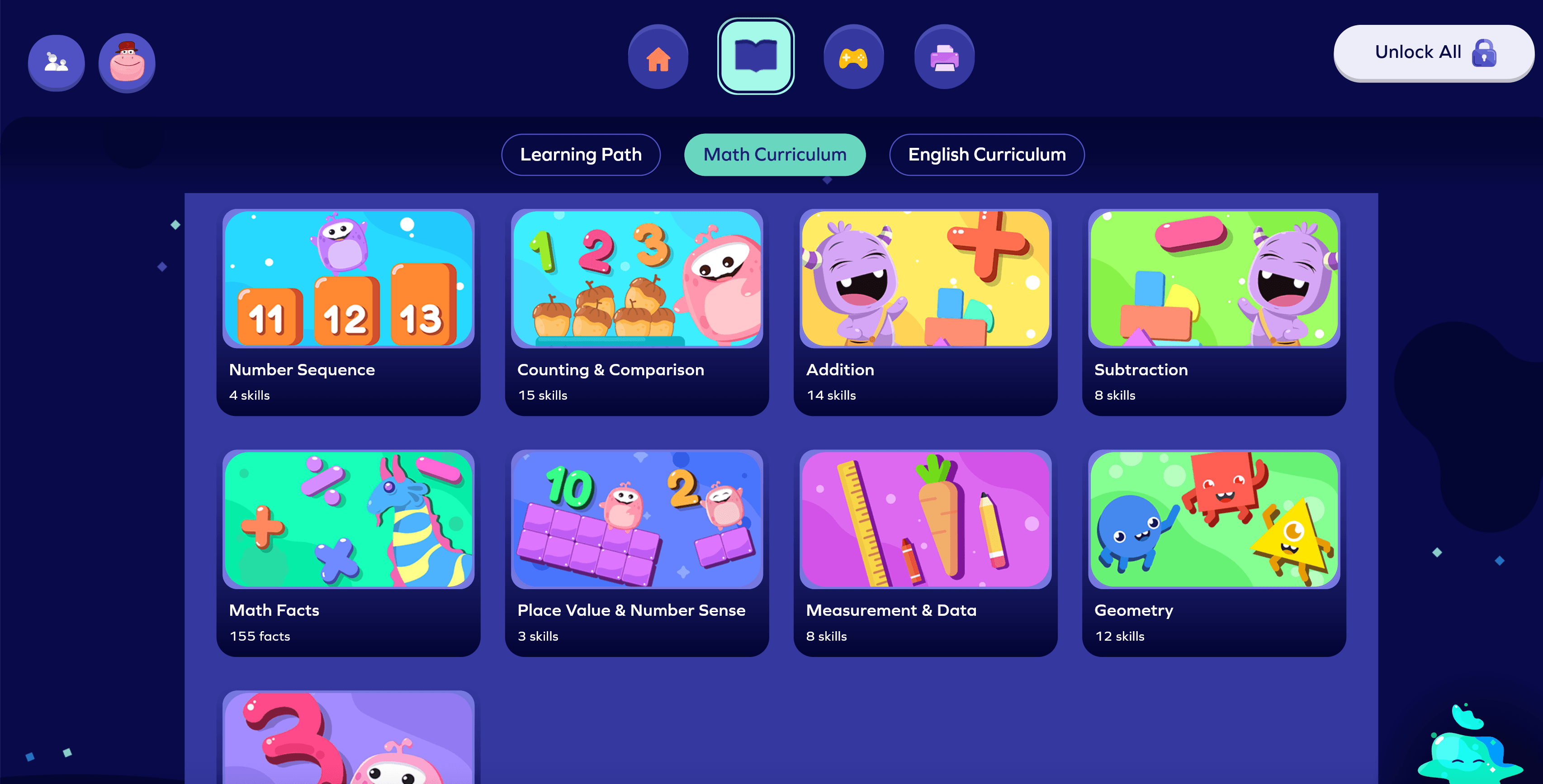
Why it's great
SplashLearn makes math and english learning fun for kids through interactive games, rewards, and story-driven practice that span the K–5 curriculum. Its playful design, short activities, and engaging visuals are especially effective for children with ADHD, keeping them motivated without overwhelming them.
What sets it apart
- Covers the entire K–5 math curriculum, for english and maths
- Lessons are broken into short, interactive activities perfect for ADHD attention spans.
- Offers adaptive learning, adjusting difficulty based on the child’s progress.
- Rewards like coins, characters, and certificates create a gamified experience that keeps kids coming back.
- Provides detailed reports for parents and teachers to track growth.
Best for
🎯 Kids in grades K–5, especially ADHD learners who benefit from short, colorful,
game-like lessons
🧠 Skills built: Early numeracy, math fact fluency, problem-solving, attention regulation, and math confidence
👉 Best suited if your child needs fun, bite-sized math games that turn practice into play.
Available on
📱 Web, iOS, Android
22. Lingokids
Learning Made Fun
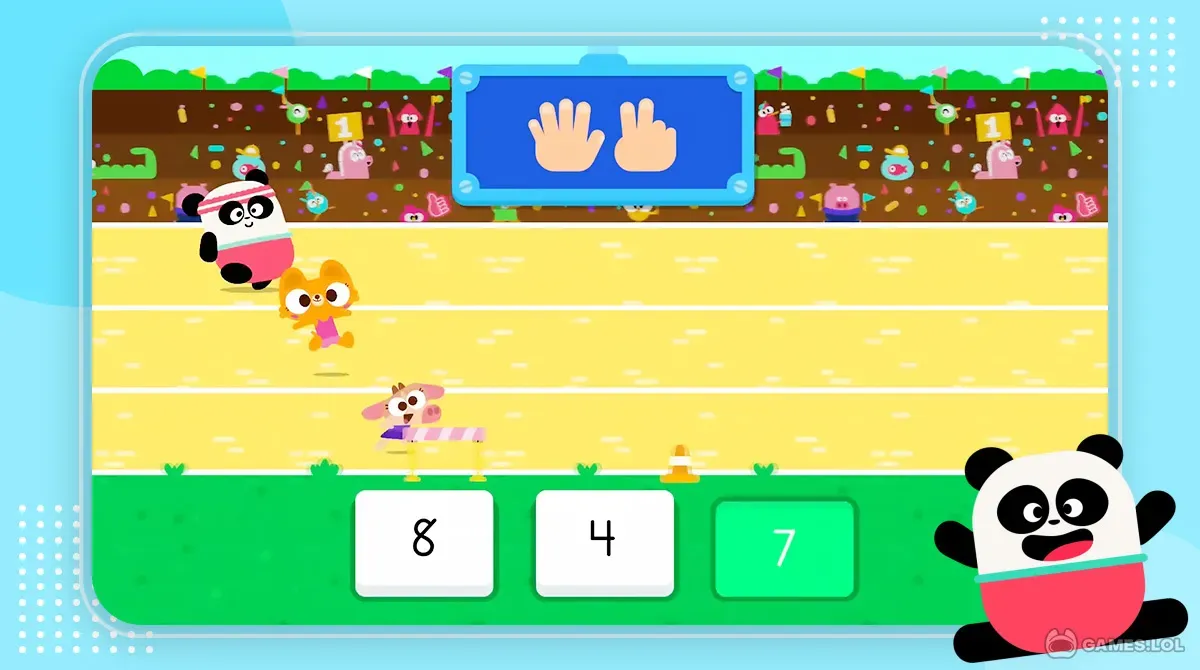
Why it's great
Lingokids calls itself a playlearning app, and that’s exactly how it feels. Kids explore a world full of songs, games, and videos that sneak in reading, vocabulary, and even social-emotional skills. For ADHD kids, the fast-paced variety and interactive characters help keep attention, while short activities mean they’re not stuck on one thing for too long.
What sets it apart
- Huge library of over 1,200 games, songs, and activities that cover reading, math, and life skills.
- Colorful characters like Lisa the Cat and Billy the Chick guide kids through playful adventures.
- Parents can track progress with a dashboard and even join in with co-play activities.
- Focuses on more than academics, kids also practice collaboration, empathy, and critical thinking.
Best for
🎯 Ages 2–8, kids who learn best when play and movement are part of the lesson.
🧠 Skills built: Vocabulary, phonics, early reading, listening comprehension, plus social-emotional skills.
👉 Best suited if your child loves variety, characters, and music, and you want learning to feel like playtime.
Available on
📱 iOS, Android
23. Kahoot!
Game show style math quizzes
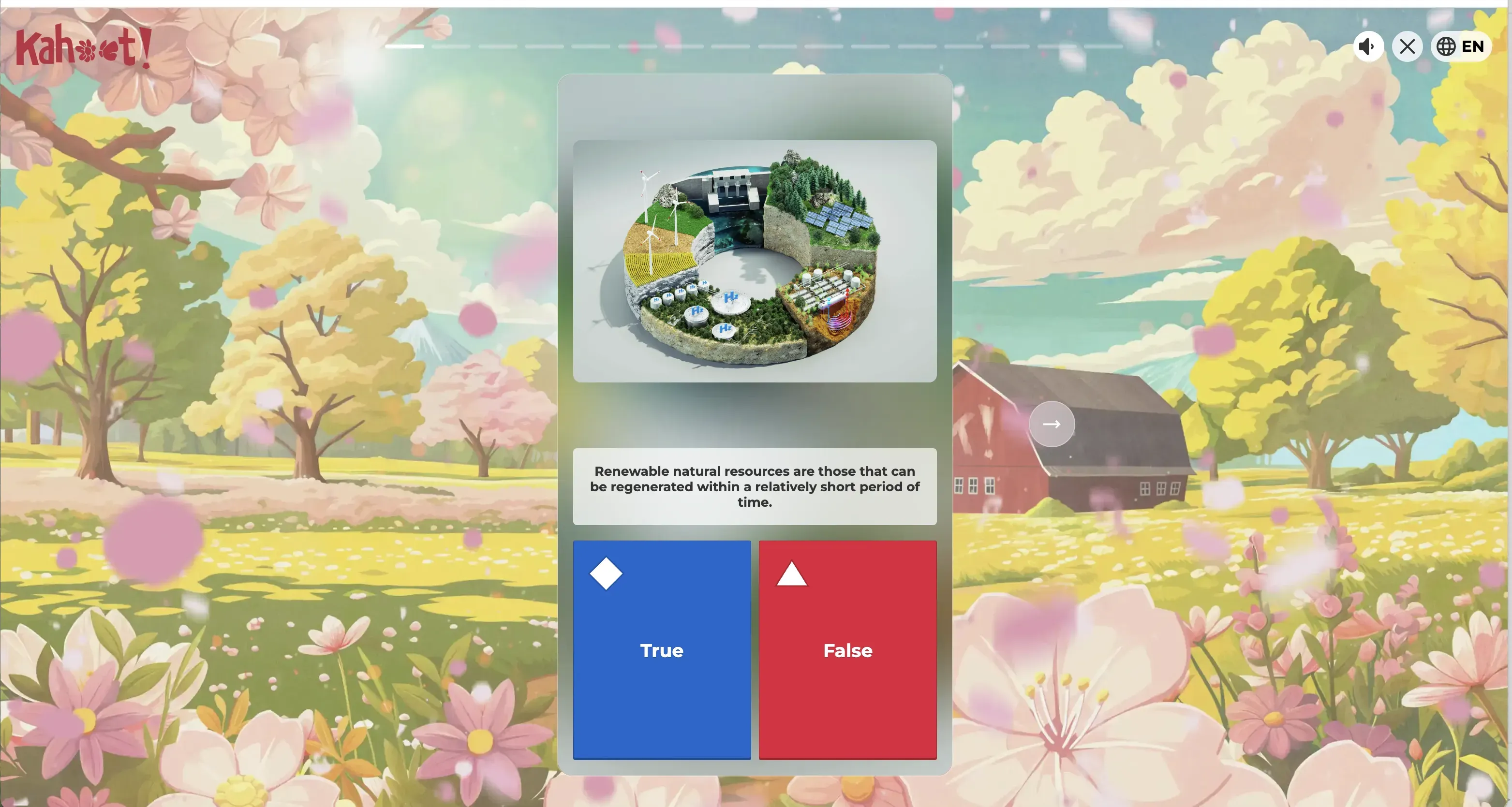
Why it's great
Kahoot! turns math practice into a fast-paced quiz game where kids answer questions in real time to earn points, climb leaderboards, and celebrate wins. Its colorful design, music, and competitive element make learning feel like a game show. For ADHD learners, the quick bursts of activity and instant feedback keep energy and focus high.
What sets it apart
- Great for classroom or group learning, encouraging participation through live games.
- Offers thousands of ready-made math quizzes or lets teachers/parents create their own.
- Short, timed questions match ADHD kids’ need for quick, engaging tasks.
- Leaderboards, music, and points create a fun, motivating environment.
- Can also be played asynchronously at home, giving flexibility outside class.
Best for
🎯 Students in grades 2–12, especially ADHD learners who benefit from fast, competitive, and interactive activities
🧠 Skills built: Math fluency, recall speed, attention control, collaboration, and motivation through gamified learning
👉 Best suited if your child stays engaged with competition, quick challenges, and instant rewards.
Available on
📱 Web, iOS, Android
24. Starfall
Playful early math & literacy learning
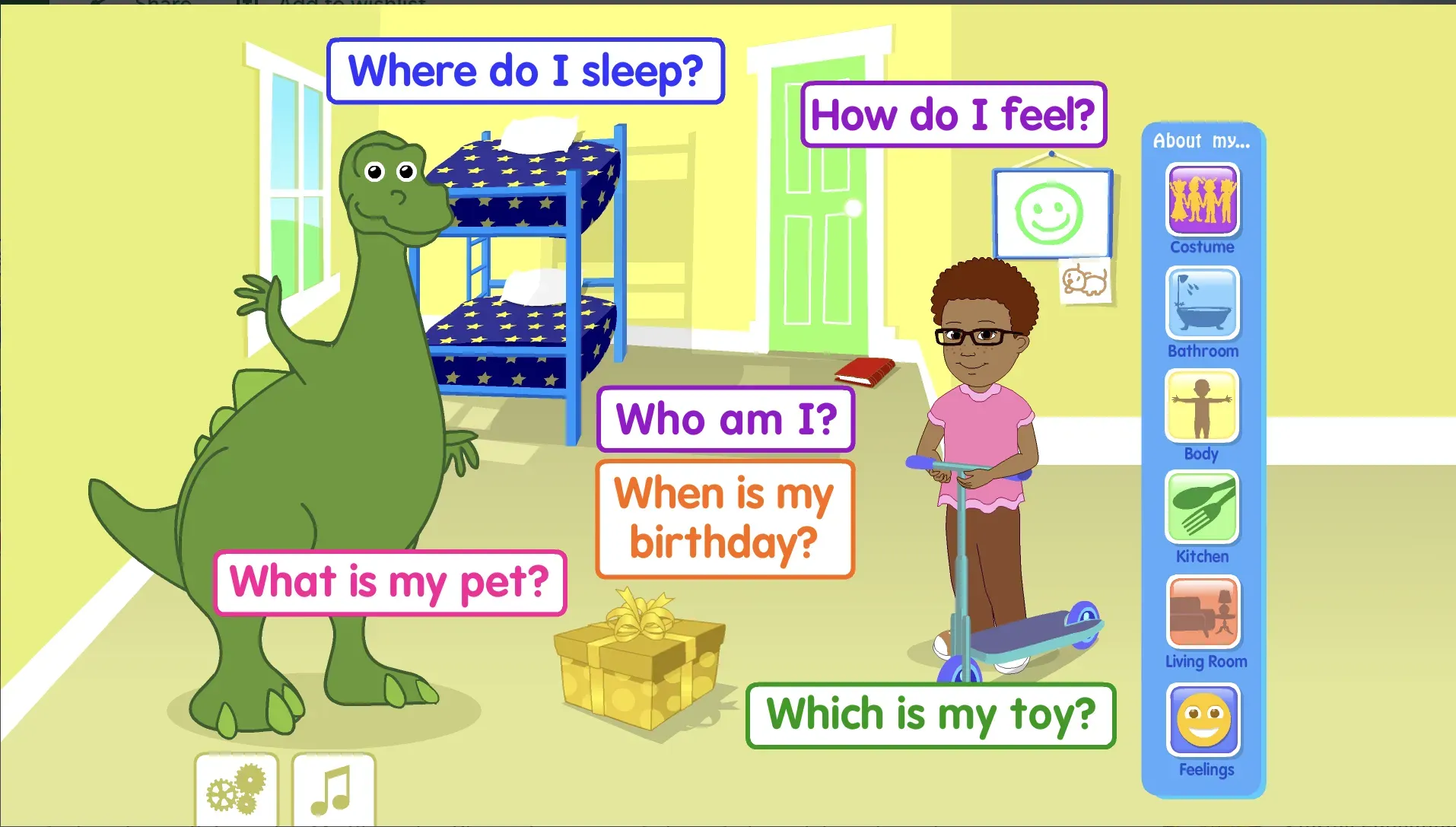
Why it's great
Starfall is a foundational learning platform that blends math, reading, and early literacy through songs, stories, and interactive games. Its simple design, clear instructions, and colorful visuals make it especially approachable for younger learners. For kids with ADHD, the short, engaging activities and multisensory format help sustain attention while making early math practice feel fun and stress-free.
What sets it apart
- Covers pre-K through grade 3, with a strong focus on early math skills (counting, addition, subtraction, patterns, and shapes).
- Uses songs, animations, and interactive stories to teach concepts in a playful, ADHD-friendly way.
- Breaks content into short, manageable segments that fit ADHD attention spans.
- Affordable, with free activities available and low-cost memberships for full access.
- Combines math with literacy and creativity, making it a well-rounded option for early learners.
Best for
🎯 Kids in pre-K through grade 3, especially ADHD learners who thrive on songs, visuals, and short interactive lessons
🧠 Skills built: Counting, early operations, number sense, patterns, problem-solving, attention regulation, and memory through multisensory learning
👉 Best suited if your child is in the early grades and needs fun, bite-sized activities to build math foundations without overwhelm.
Available on
📱 Web, iOS, Android
25. Khan Academy
Self-paced mastery
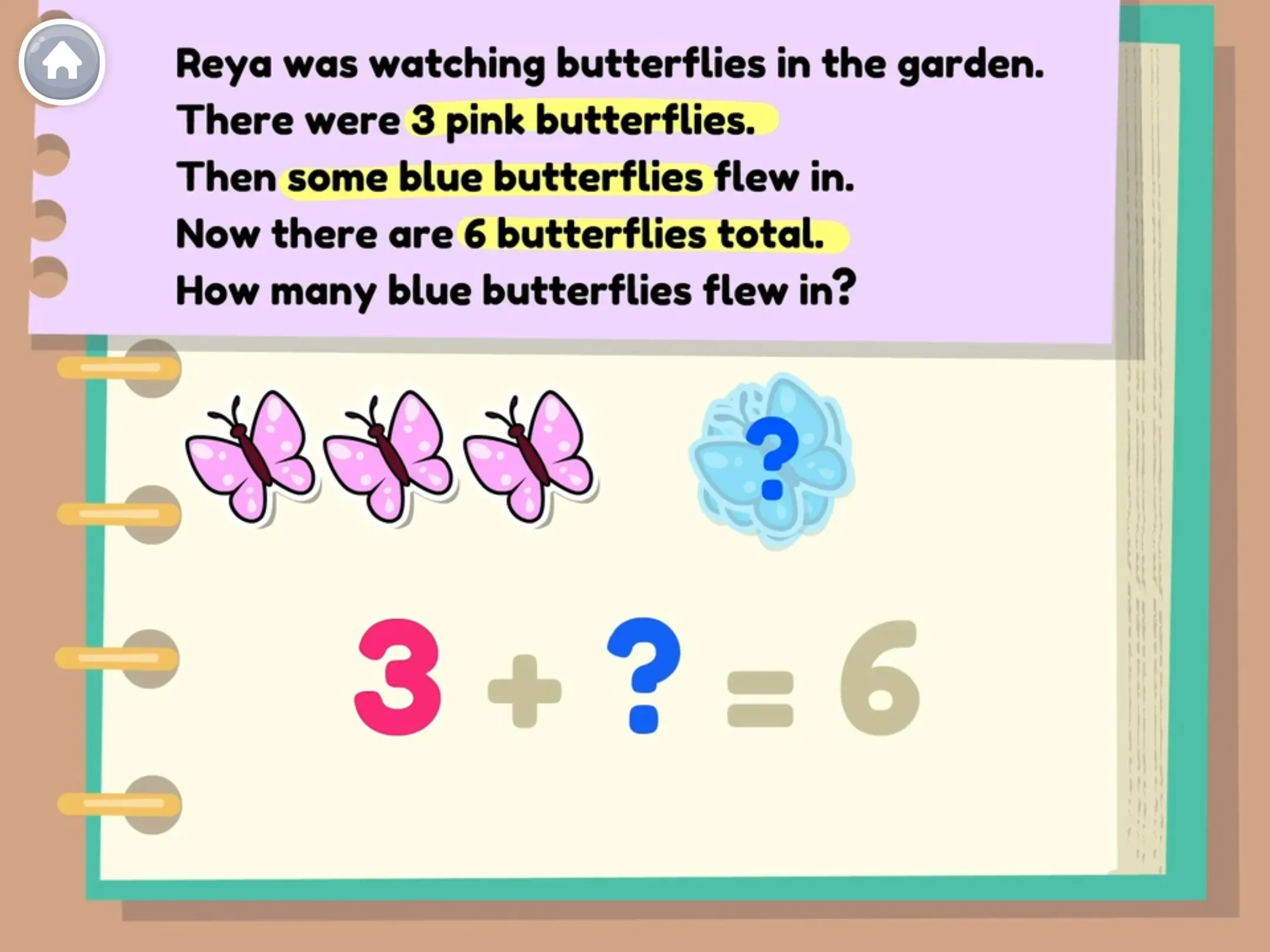
Why it's great
Khan Academy covers everything from basic arithmetic, advanced math to a wide range of other subjects. Its short, structured video lessons and practice problems make concepts clear and approachable. For kids with ADHD, the bite-sized format and ability to pause, rewind, or rewatch at their own pace provide flexibility and reduce overwhelm.
What sets it apart
- Covers all grades K–12, aligned with curriculum standards.
- Short, focused videos make learning manageable for ADHD attention spans.
- Built-in practice quizzes and mastery tracking encourage progress.
- Parent and teacher dashboards help track performance and set goals.
- Includes Khan Academy Kids (ages 2–8), a playful app with stories, songs, and games—great for younger ADHD learners.
Best for
🎯 Students in grades K–12 (plus ages 2–8 via Khan Academy Kids), especially ADHD learners who benefit from short, self-paced lessons and visual explanations
🧠 Skills built: Conceptual understanding, problem-solving, math fluency, focus, and independent study habits
👉 Best suited if your child needs flexible, bite-sized lessons they can pause and replay for better focus.
Available on
📱 Web, iOS, Android
Now that you have a list of apps to try, take the next step. Go ahead, download the apps and start a free trial. Explore them along with your child, notice the ones which keep them engaged and make learning feel fun. The right app can truly turn math anxiety into math confidence.
FAQs
What makes an app “ADHD-friendly”?
Look for short levels (2–5 minutes), clear goals, immediate feedback, adjustable or no timers, visual models/manipulatives, and progress dashboards. These design choices reduce working-memory load and keep motivation high.
Do game-based learning apps actually help kids with ADHD?
Evidence suggests well-designed games can improve engagement and some learning/attention outcomes; one video-game treatment (EndeavorRx) even has FDA clearance. Treat apps as a complement to teaching—not a replacement for instruction, tutoring, or therapies.
How much screen time is OK?
There isn’t a single “right number” for all kids. Follow the AAP’s approach: make a Family Media Plan that prioritizes sleep, physical activity, schoolwork, and co-play. For younger children, choose short, high-quality sessions with an adult nearby.
How do I pick the best app for my child?
Match the app to your child’s current goal (e.g., math facts vs. geometry; phonics vs. comprehension), try a 1–2 week trial, keep sessions brief and consistent, and check for transfer: can your child do a similar task with pencil/paper or in daily life?
My child melts down with timed drills - what should I do?
Choose apps with adjustable speed or no timers and strong visual supports. Timers can spike anxiety and working-memory load; short, scaffolded tasks with immediate feedback are better. Focus less on rote memorisation and more on conceptual understanding.
Will rewards (points/badges) hurt intrinsic motivation?
Use rewards as informational feedback (“You used a new strategy!”) rather than pressure. Pair badges with specific, effort-focused messages and gradually fade them as confidence grows.
How do I minimize distractions?
Use one device, enable Guided Access/app pinning, turn off notifications, use headphones, schedule movement breaks between short sessions, and keep other apps closed.
Do these apps replace a tutor or IEP/504 accommodations?
No. Apps can reinforce skills and reduce stress, but they don’t replace individualized supports. Align app use with IEP/504 goals and share progress data with teachers.
How do I know if learning is “sticking” beyond the app?
Look for spaced, mixed practice inside the app, then check off-app performance (quick oral checks, paper problems, daily-life math). Retrieval and spacing drive long-term retention.
Any risks with games and ADHD?
Monitor for overuse and keep screens out of bedrooms. Evidence on problematic gaming is mixed; set guardrails (session length, co-play, goals) and emphasize balance.
References
- Gaye, F. et al. (2023/2024). Working Memory and Math Skills in Children With and Without ADHD.
- Doulou, A.; Pergantis, P.; Drigas, A.; Skianis, C. Managing ADHD Symptoms in Children Through the Use of Various Technology-Driven Serious Games: A Systematic Review. Multimodal Technol. Interact. 2025, 9, 8.
